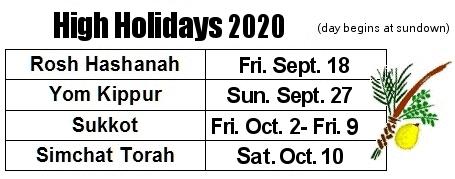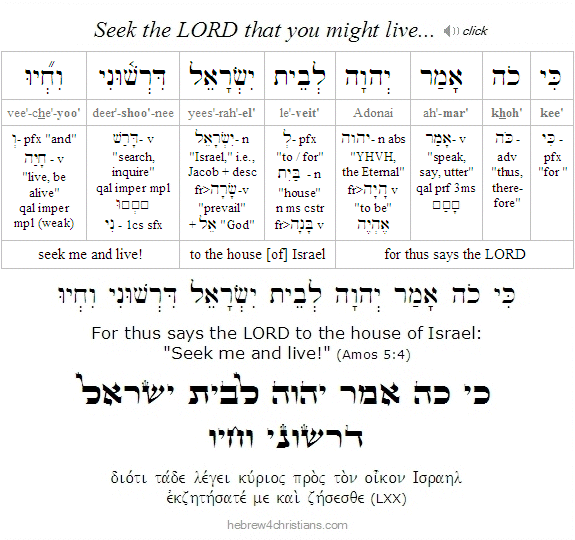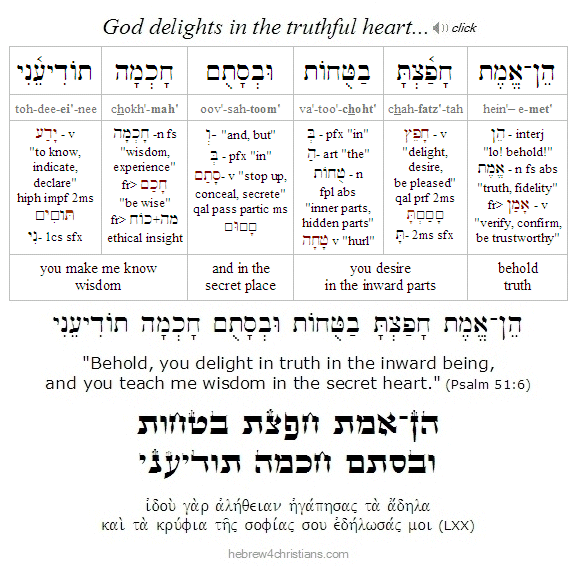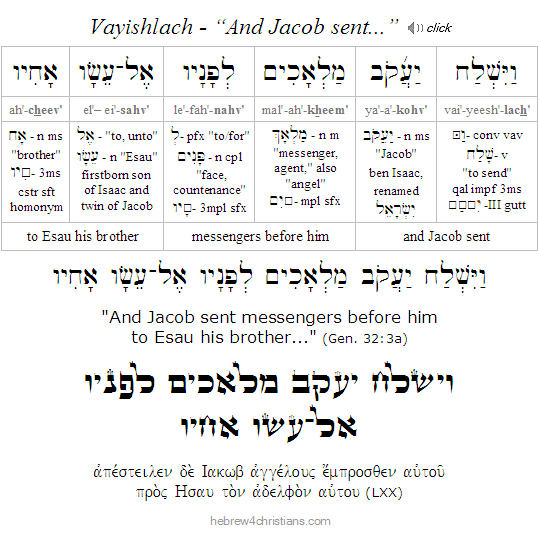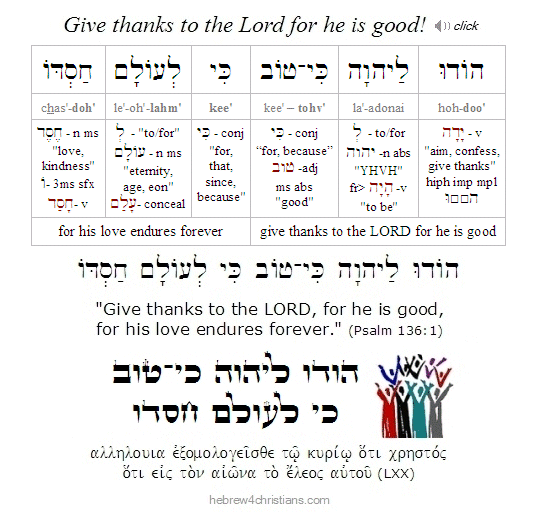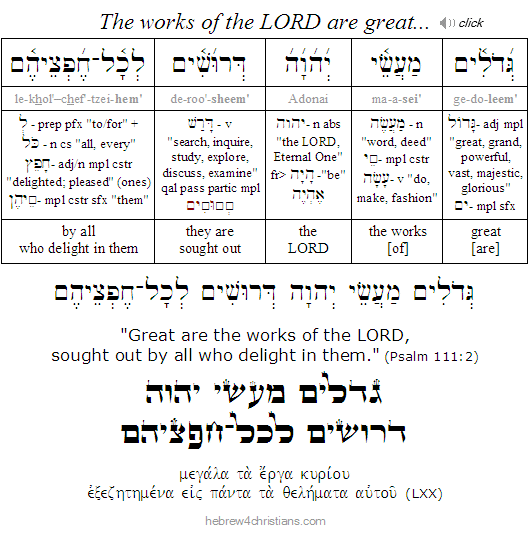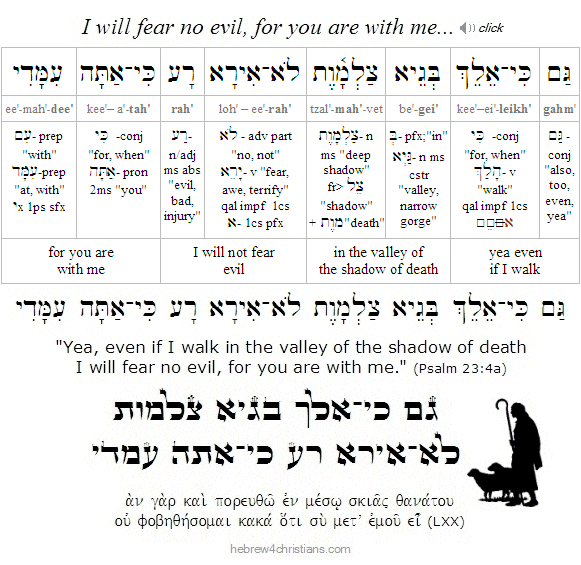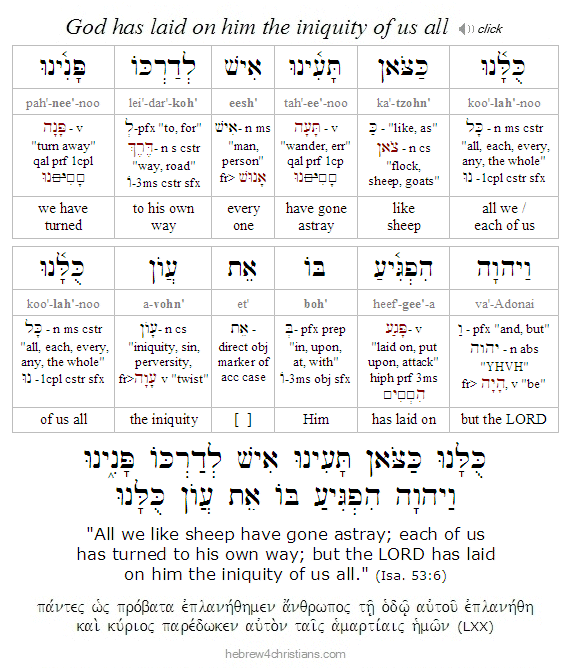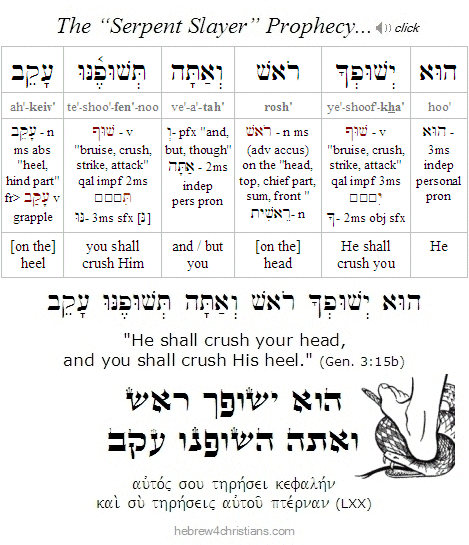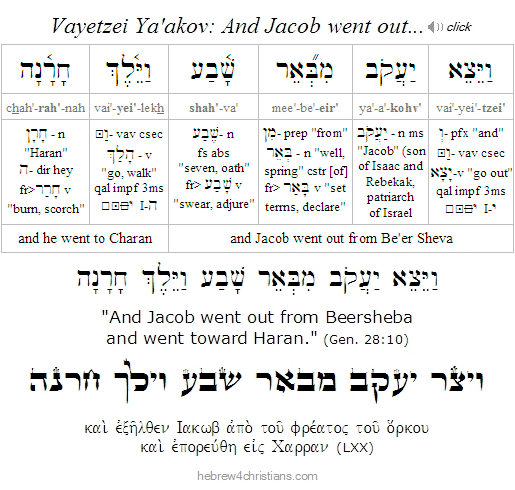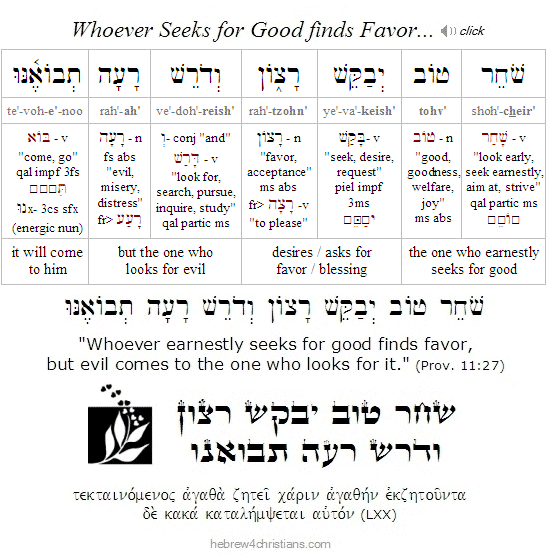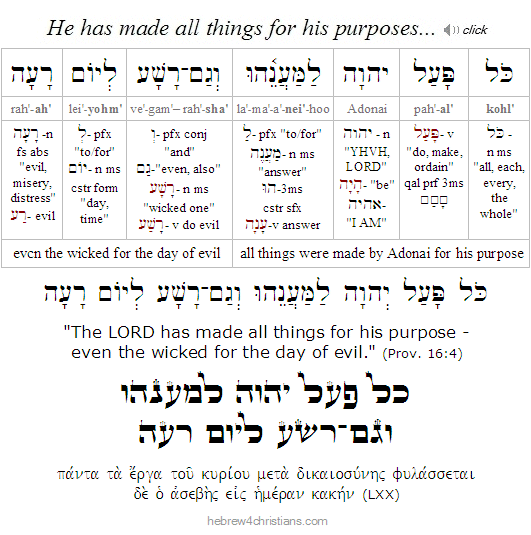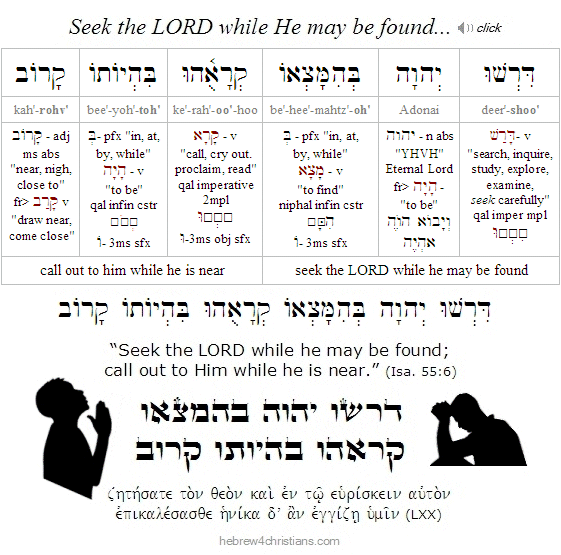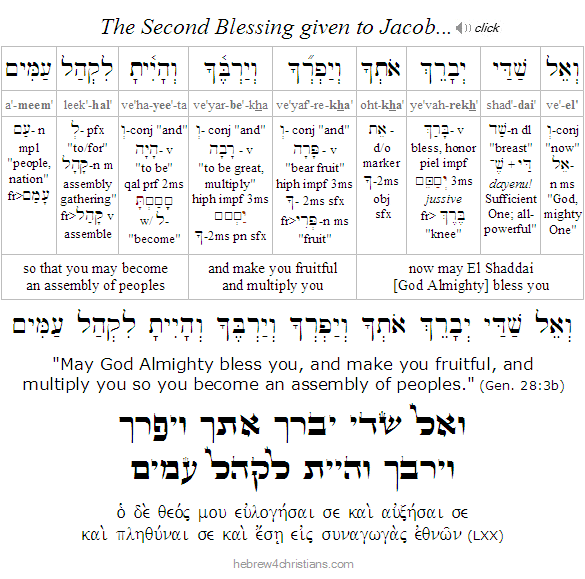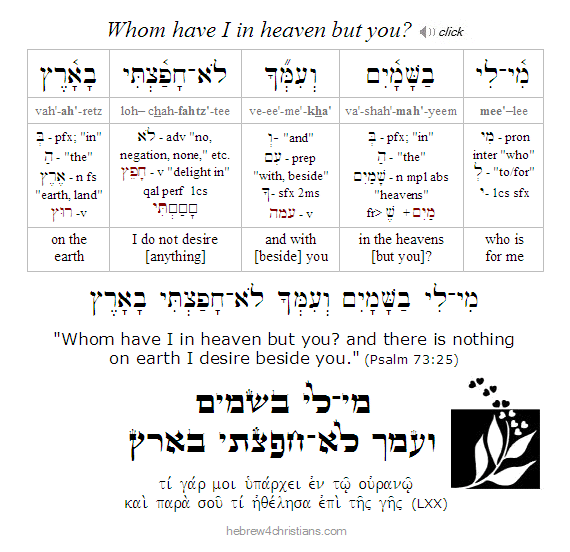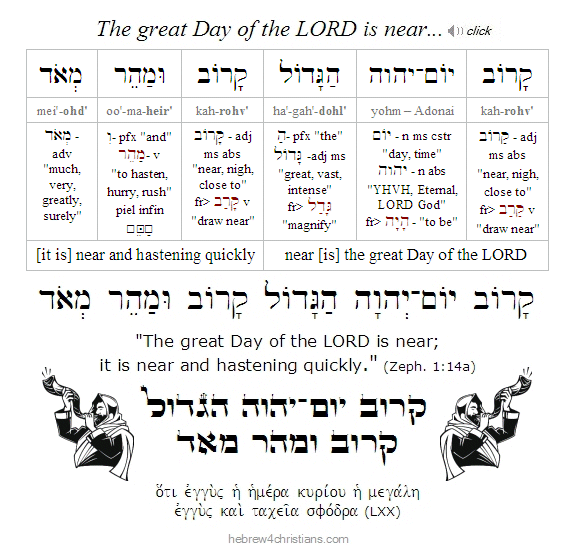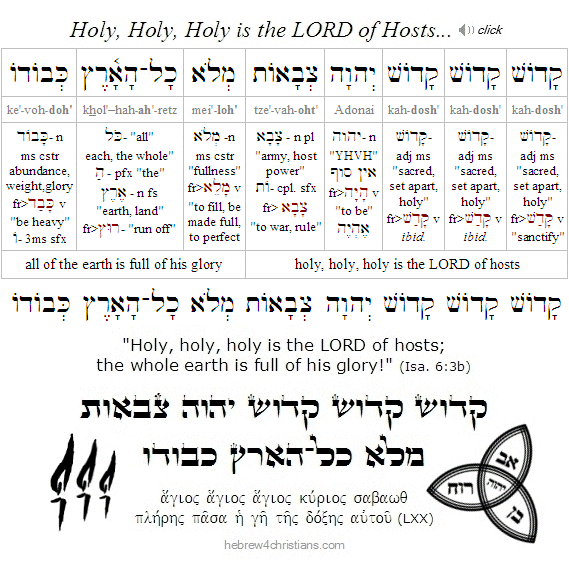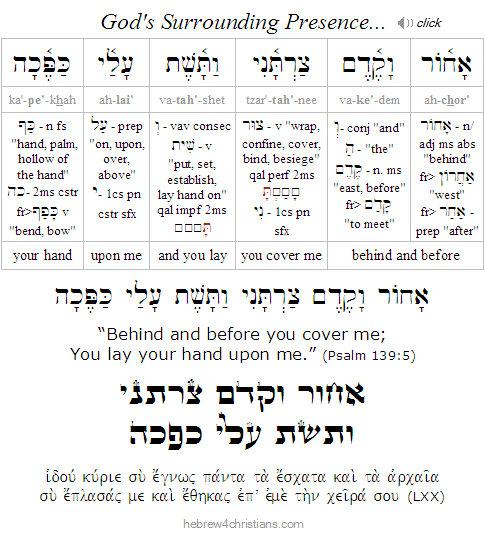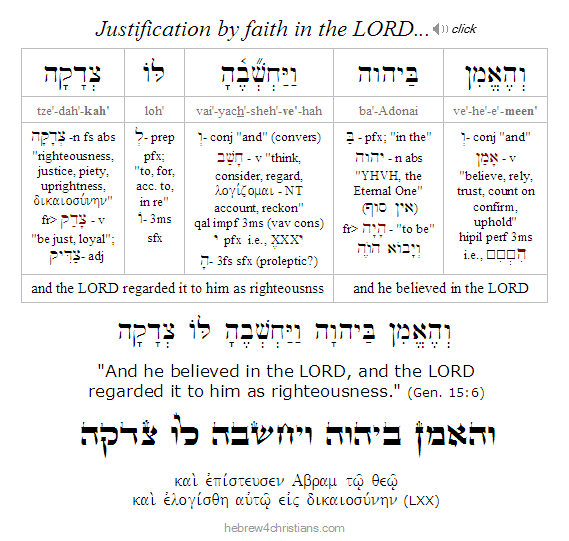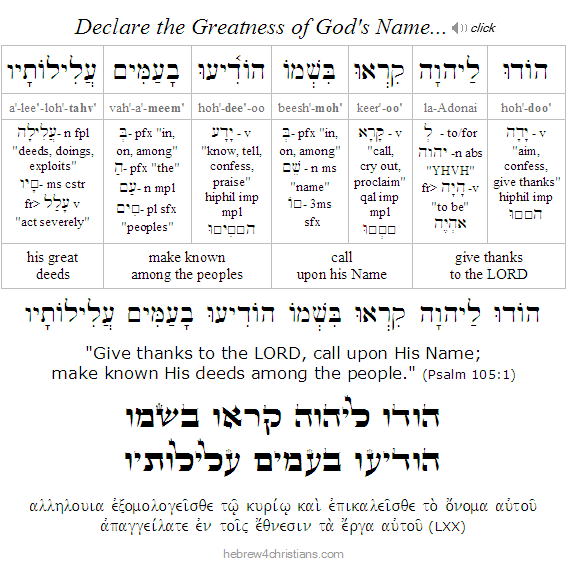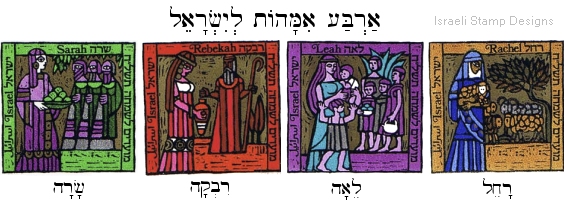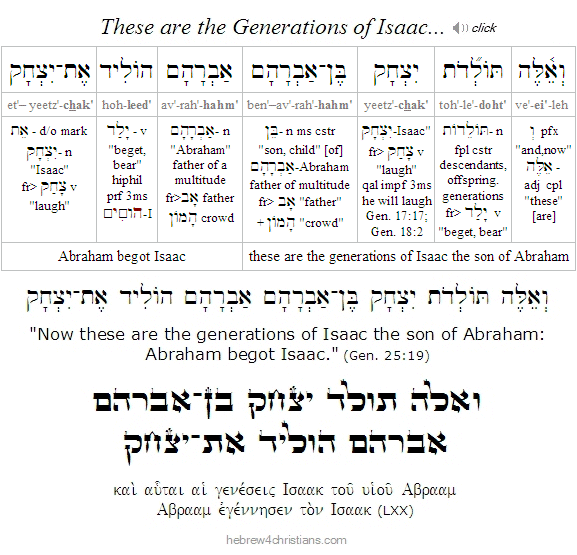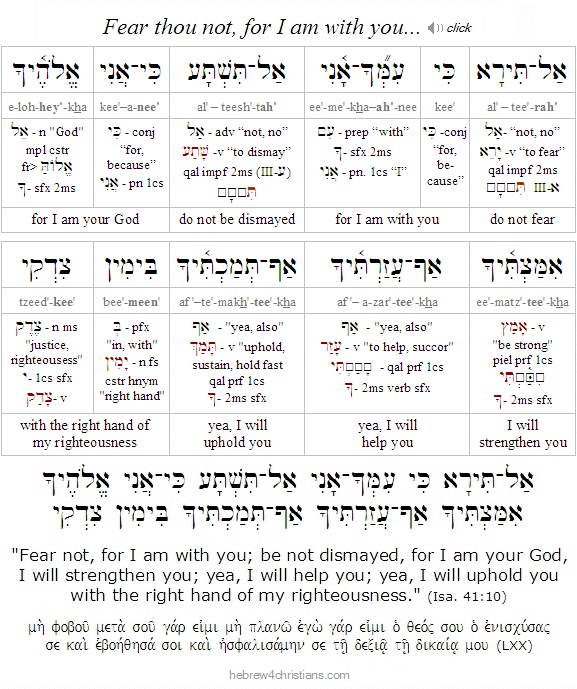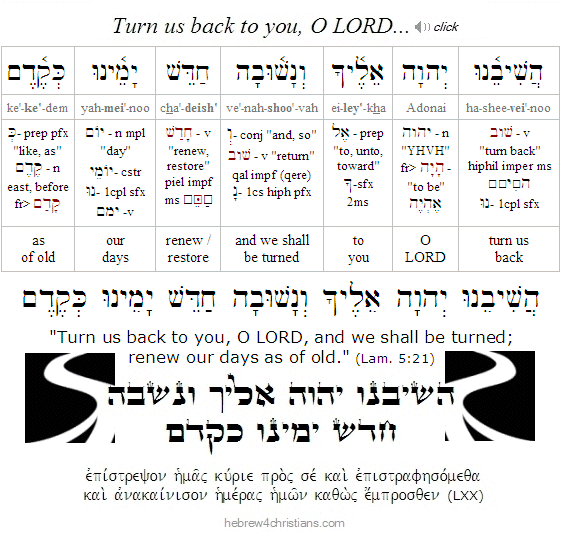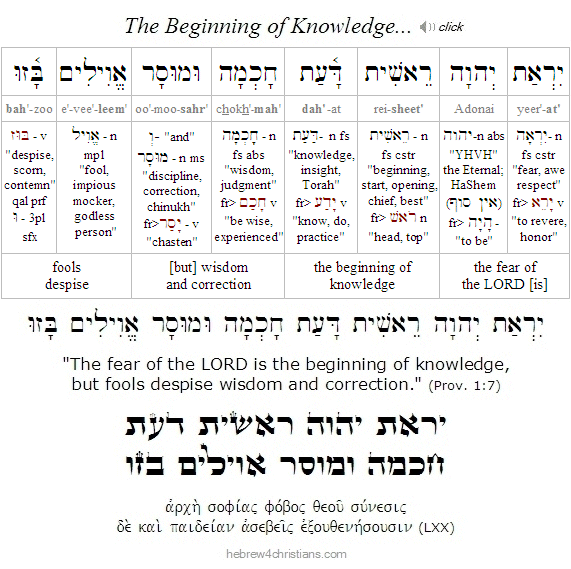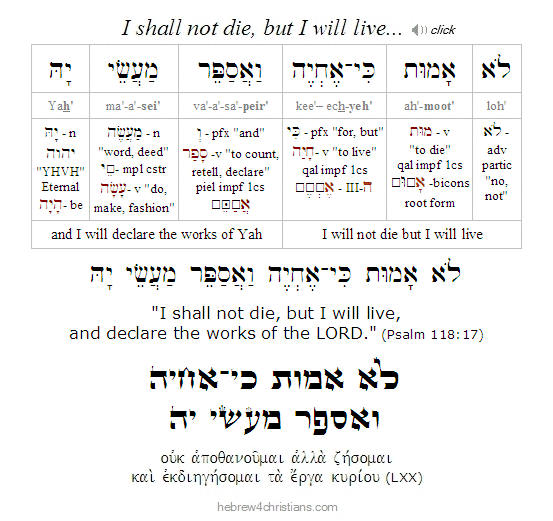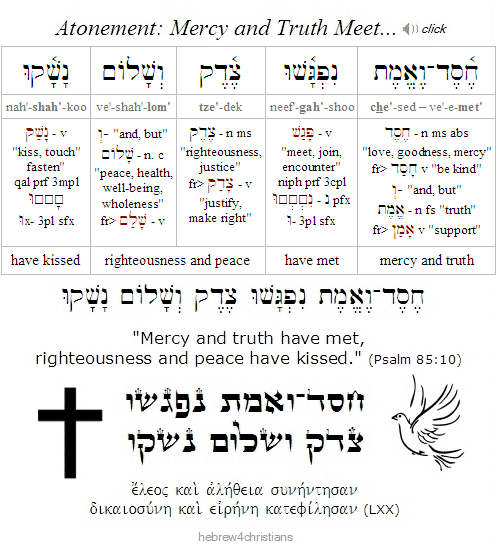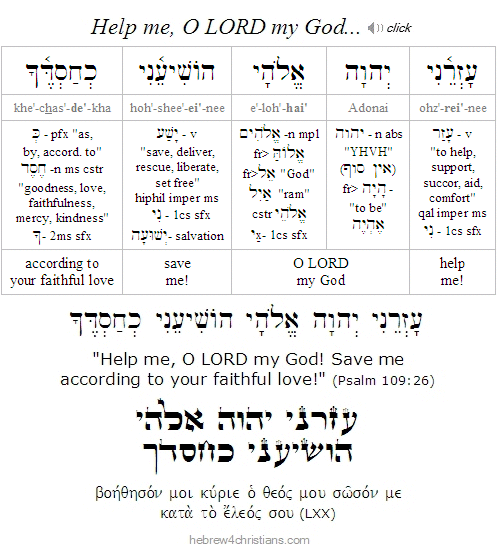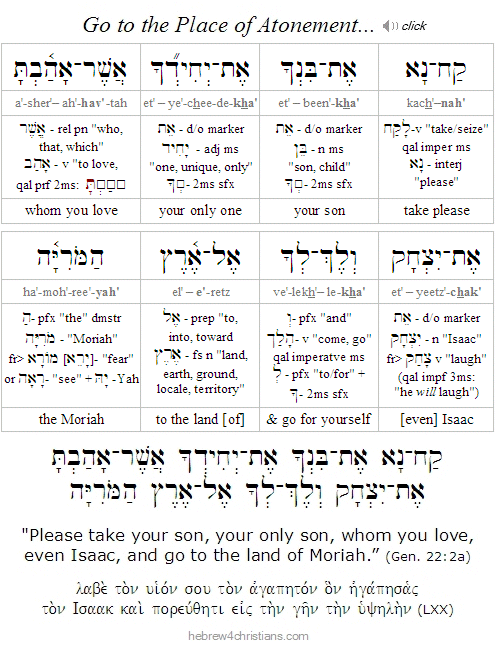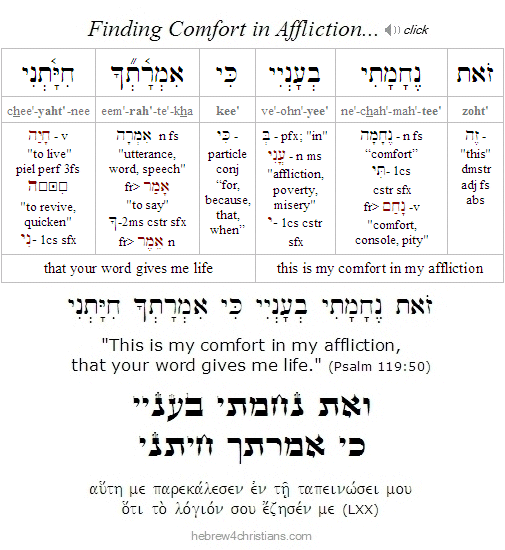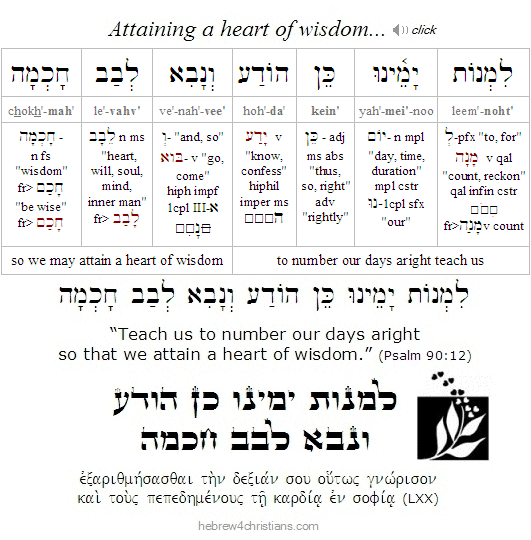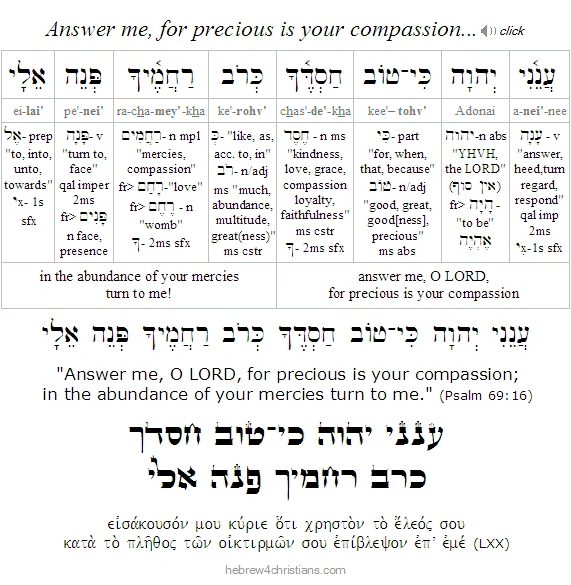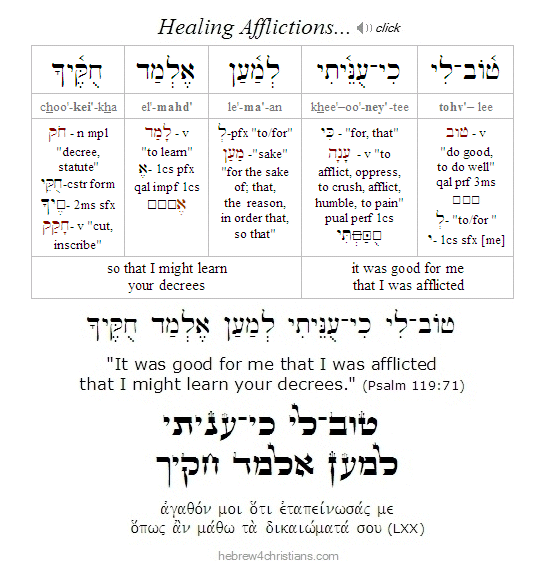|
Jewish Holiday Calendar
For November 2020 site updates, please scroll past this entry....
The Torah divides the calendar into two symmetrical halves: the Spring and the Fall, indicating the two advents of Messiah. The Biblical year officially begins during the month of the Passover from Egypt (called Rosh Chodashim, see Exod. 12:2), and the spring holidays of Passover, Unleavened Bread, and Firstfruits both recall our deliverance from Egypt and also our greater deliverance given by means of the death, burial, and resurrection of the Messiah, the great Passover Lamb of God. Yeshua was crucified on erev Pesach, buried during Unleavened Bread, and was resurrected on Yom Habikkurim (Firstfruits). The holiday of Shavuot (i.e., "Pentecost") both commemorates the revelation of the Torah at Sinai as well as the revelation of the Ruach HaKodesh (Holy Spirit) at Zion, in fulfillment of the promise given by our Lord....
The intermediate months of summer end with the advent of the sixth month of the calendar, called the month of Elul, which recalls the time Moses interceded on behalf of Israel after the sin of the Golden Calf. To commemorate this time of our history, we likewise focus on teshuvah (repentance) in anticipation of Rosh Hashanah and especially in anticipation of Yom Kippur, the great "Day of Atonement." In Jewish tradition the 30 days of Elul are combined with the first ten days of the seventh month (called the "Days of Awe") to set apart "Forty Days of Teshuvah" leading up to the Day of Forgiveness for Israel. Immediately following Yom Kippur, the mood changes as we begin preparing for a joyous week-long celebration called Sukkot (i.e., "Tabernacles") that concludes with the holiday of Simchat Torah.
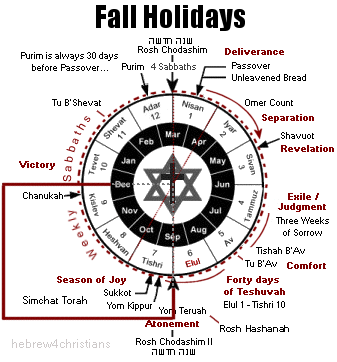 |
The Fall Holidays:

The fall festivals prophetically indicate the Day of the LORD, the second coming of Yeshua, the great national turning of the Jewish people, and the establishment of the reign of the Messiah upon the earth during the Millennial Kingdom in the world to come.
Note that in accordance with tradition, holiday dates begin at sundown. Moreover, some holidays may be postponed one day if they happen to fall on the weekly Sabbath:
1. Month of Tishri (Fri. Sept. 18th [eve] - Sat. Oct. 17th [day]) - Fall holidays begin!
2. Month of Cheshvan (Sat. Oct. 17th [eve] - Mon. Nov. 6th [day])
- Four Sabbaths: Noach, Lekh-Lekha, Vayera, Chayei Sarah
- Yom Ha'Aliyah - Honoring Israel's immigrants (Sat. Oct. 24th; Cheshvan 7)
- Sigd - 50th day after Yom Kippur; Ethiopian Jewish holiday Sun Nov. 15th)
3. Month of Kislev (Mon. Nov. 17th [eve] - Tues. Dec. 15th [day])
- Four Sabbaths: Toldot, Vayetzei, Vayishlach, Vayeshev
- Winter Solstice: Mon. Dec. 21st, Tevet 5)

- Dates for Chanukah 2020 (5781):
- 1st Chanukah candle - Thurs. Dec. 10th [i.e., Kislev 25]
- 2nd Chanukah candle - Fri. Dec. 11th [Kislev 26]
- 3rd Chanukah candle: Sat. Dec. 12th [Kislev 27]
- 4th Chanukah candle: Sun. Dec. 13th [Kislev 28]
- 5th Chanukah candle: Mon. Dec. 14th [Kislev 29]
- 6th Chanukah candle: Tues. Dec. 15th [Kislev 20]
4. Month of Tevet (Fri., Dec. 15th [eve] - Sun. Jan. 26th [day])
- Four Sabbaths: Miketz, Vayigash, Vayechi, Shemot
- Dates for Chanukah (continued):
- 7th Chanukah candle: Wed. Dec. 16th [Tevet 1] (Chodesh Chanukah)
- 8th Chanukah candle: Thur. Dec. 17th [Tevet 2] Zot Chanukah
- Last day of Chanukah: Fri. Dec. 18th [Tevet 3] - until sundown
- Asarah B'Tevet - Fri. Dec. 25th (dawn); fast over the seige of Jerusalem
- Christmas: Fri. Dec. 25th (Tevet 9, 5781)
- Secular New Year: Fri. Jan. 1st, 2021 (Tevet 17, 5781)
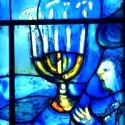 |
Note: For more about the dates of these holidays see the Calendar pages....
November 2020 Updates
Note: If any page content appears to be missing, please refresh the page...
Wresting the Blessing...

[ The following entry is related to this week's Torah reading, parashat Vayishlach... ]
11.30.20 (Kislev 14, 5781) In our Torah portion for this week (i.e., Vayishlach), we read how Jacob wrestled with a mysterious "Man" until the break of dawn, but refused to let go until he had secured God's blessing (Gen. 32:24-26). This climactic moment marked a "rebirth" experience for Jacob as signified by his new name "Israel" (יִשְׂרָאֵל), meaning "one who has striven (שָׂרָה) with God (אֱלהִים) and prevailed" (Gen. 32:28). It is fascinating to notice that Jacob was not renamed "God-fearer," or "God-lover," or even "Man of faith," but rather "God-wrestler" – one who struggles with God until the blessing comes... As Yeshua said, "Blessed are those who hunger and thirst for righteousness" – that is, for those who struggle and search for truth – "for they shall be filled" (Matt. 5:6). The blessing comes with a wound, however: The limp that Jacob acquired constantly reminded him of his ongoing need for God's help as he walked through this life. "The one who falls on this Stone will be broken to pieces; but when it falls on anyone, it will crush him" (Matt. 21:44).
 |
So how are you struggling? How does that feed your hunger for God? The characteristically Jewish approach to life is to struggle, to fight, and to ask hard questions until we find out who we really are and what we call ourselves... We can change what has happened in our past by changing what is happening in our present: "For thus says the LORD to the house of Israel: dirshuni vichyu (דִּרְשׁוּנִי וִחְיוּ) - "Seek me and live" (Amos 5:4).
Hebrew Lesson:
Amos 5:4 Hebrew reading (click):
The Still Small Voice...

11.30.20 (Kislev 14, 5781) Worry is a place of exile and pain. "For thus said the Lord GOD, the Holy One of Israel, "In returning and rest you shall be saved; in quietness and in trust shall be your strength" (Isa. 30:15). This message, alas, is rarely heeded because people are easily seduced by the vain attractions and empty threats of this evil world. We are constantly barraged with spurious messages that appeal to our lusts, our fears, or our vanity: "Buy me!" "You need this!" "Find pleasure," "This will bring you love, respect," etc.; Or we are given subliminal messages to be afraid and conform to the programming of those in power, to uncritically trust authority figures, to resist independent thinking, to submit to the mass hypnosis of the collective, and so on. We are so saturated by such fraudulent messages that we often deprecate them as "just words" and thereby become cynical of our need for truth. Because worldly language is a means of coercion and violence, we must be ready to think clearly and to ask the deeper questions about truth, significance, and the reality that language was intended to reveal to our conscious minds. Just as written words require surrounding spaces to identify their significance, however, so we need quiet - silence spaces within our souls - to heed the message of truth. Indeed the Torah links the use of language with the soul (i.e., nefesh: נֶפֶשׁ) since God breathed into Adam the ability to think and to speak. Thought and speech, then, are two primary characteristics of being created in the image (צֶלֶם) of God. A declarative statement constitutes an implied promise of veracity or"testimony" that is considered a "bond on the soul" (אִסָּר עַל־נַפְשׁוֹ) and therefore our use of words is directly linked to the "breath of God" within us. This further implies that lying, equivocating, denying the truth, or breaking our word defaces the image of God within us.
Yeshua spoke of "good and evil treasures of the heart" that produce actions that are expressed in our words (Luke 6:45). Our inward motive determines our thinking, which in turn affects the way we act and use words. Therefore He warned: "I tell you, on the day of judgment people will give account for every careless (ἀργὸν) word they speak, for by your words you will be justified, and by your words you will be condemned" (Matt. 12:36-37). Our very salvation is based on confession of the truth, and therefore we must be sure to use communication as a means of expressing the love and grace of God (Rom. 10:9; Col. 4:6). We must be on guard to keep away from lashon hara (evil speech) by focusing on what is worthy, lovely, and of good report (Prov. 13:3, Phil. 4:8). As King David prayed: "Let the words of my mouth and the meditation of my heart be acceptable in your sight, O LORD, my Rock and my Redeemer" (Psalm 19:14).
Hebrew Lesson:
Psalm 19:14 Hebrew Reading (click):
Since words represent thoughts, the use of our tongues has to do with how we choose to think... "Think on these things..." We are instructed to "take every thought captive" (αἰχμαλωτίζω, i.e., lead away as a prisoner) to the obedience of Messiah... It is wise to restrain our speech, because, after all, we often have no idea what we are talking about, and therefore our words can become unruly and even dangerous. Whenever we open our mouth to speak, Heaven is listening (Matt. 12:36-37). Therefore may it please God to help us use our words for the purpose of strengthening and upbuilding (οἰκοδομὴν) one another (Eph. 4:29). May our words always be gracious and "seasoned with salt" (Col. 4:6). Amen. "Whoever keeps His word, in him truly the love of God is perfected" (1 John 2:5).
Loneliness and Consolation...

11.30.20 (Kislev 14, 5781) You may sometimes feel lonely and afraid, wondering if anyone really cares for you; you may feel abandoned to wander about in your heartache, without a sense of acceptance or "place" for your life; you may feel estranged from others, in a place of desperation, a silent scream, without apparent comfort in the world... These are real feelings and I do not discount them, though often such feelings arise from unbelief, or at least from questioning whether God's love is for you, after all.
Friend, there is an intimate comfort for your mourning; there is heavenly consolation for the grief and emptiness you feel inside. Look again to the cross and attend to God's passion for you; believe in the miracle of Yeshua's love for you; by faith see his blood shed for you... He knows your alienation: he was "despised and rejected of men"; he knows the pains of your heart: he was a "man of sorrows acquainted with grief"; he knows the heartache of being forsaken, abandoned, and utterly betrayed. Indeed Yeshua knows your infirmities; he understands how you hurt and calls you to his comfort... Therefore when feelings of loneliness well up within you, go inward to commune with the Spirit. Ask God for his consolation so that you too might console others who are suffering (2 Cor. 1:3-4). Do not lose hope but foresee your blessed future. Focus on the coming day of healing for all the world. Remind yourself again and again that you are never really alone, that nothing can separate you from God's love, and that God's Name is "I-am-with-you-always," "I am your Abba, your Imma, your true home and place of belonging, all your dreams of love will come true, and unimaginable beauty and endless delight await you in the glories of the world to come."
"Whoever has God truly has a companion in all places, both on the street and among people.. Why is this so? It is because such people possess God alone, keeping their gaze fixed upon him, and thus all things reveal God for them.... Such people bear God in all their deeds and in the places they go, and it is God alone who is the author of all they do." - Meister Eckhart (Talks of Instruction)
You will never feel safe as long as you regard the acceptance of who you are as conditional, since you will only be as secure as your own best efforts, a project that will exhaust you in the end. Instead you must know yourself as truly loved by God, just as the "prodigal son" came to know his father's unconditional love and acceptance despite his many misdeeds (Luke 15:11-32). The incarnation of Jesus means that God "runs to meet and embrace you," regardless of whatever happened in your life that made you run away from home. And whatever else it may be, sin is the separation from God's love, but Yeshua made the decision to die for your sins before you were born. Your sin cannot overrule God's surpassing and personal love for your soul, since God gave up his very life for you to find life.
The Hebrew word for "life" is chayim (חַיִּים), a plural noun that contains two consecutive letter yods (יי) that picture two "hands held together" (the Hebrew word yad [יָד] means "hand"), or the union of our spirit with God's Spirit. The word itself reveals that there is no life apart from union with God, who extends his hand to you and says, "Live in me" (John 15:4). We live in him by faith, receiving our daily bread as his flesh and our drink as his blood (John 6:53). Yeshua is the Source of all life, and we find nourishment, strength, and fullness of joy in his life. The Lord is our light and our salvation, the Mediator of divine life (Psalm 27:1; John 1:4). As it is written, "Whoever has the Son has the life; but whoever does not have the Son of God does not have the life" (1 John 5:12).
The Lord is also called "the God of breath" (Gen. 2:7; Num. 16:22). The Hebrew word for breath is ruach (רוּחַ), a word that means both "spirit" and "wind." God is as close as your breath and surrounds you like the unseen yet encompassing air. Since God's name YHVH (יהוה) means "Presence" (Exod. 3:13-14), "Life" (Deut. 30:20), and "Love" (Exod. 34:6-7), he is the Beloved, the "I-am-with-you-always" lover of your soul. So fear not; you are never really alone. Yeshua breathes out to you and says, "Receive the Holy Spirit" (John 20:22).
Hebrew Lesson:
Jeremiah 31:3b Hebrew Reading (click):
Preparing for Chanukah 2020...
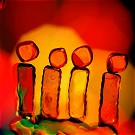
11.30.20 (Kislev 14, 5781) On the Biblical calendar the month of Kislev (כִּסְלֵו) is the ninth of the year (counting from Nisan), and also one of the "darkest," with the days progressively getting shorter and the nights getting longer. Indeed, the Winter Solstice often occurs during the last week of Kislev, and therefore the week of Chanukah (which straddles the months of Kislev and Tevet) often contains the longest night of the year. It is no wonder that, among other things, the holiday of Chanukah represents an appropriate time to kindle the lights of faith - and to remember the Light of the World in the Messiah's advent to earth...
 |
The Hebrew word Chanukah (חֲנֻכָּה) means "dedication" and marks an eight day winter celebration that commemorates the victory of faith over the ways of speculative reason, and demonstrates the power of the miracle in the face of mere humanism. Although it is customarily observed as a "Festival of Lights," Chanukah is a "fighting holiday" -- a call to resist the oppression of this world and to exercise faith in the LORD (Rom. 13:12).
This year the eight days of Chanukah will begin on Thursday, December 10th at sundown (1st candle) and will run until Friday, December 18th just before sundown. On the first night of Chanukah one flame is lit, on the second night two, and so on until the eighth night when eight flames are lit. In this way we remember the 'growth' of the miracle.
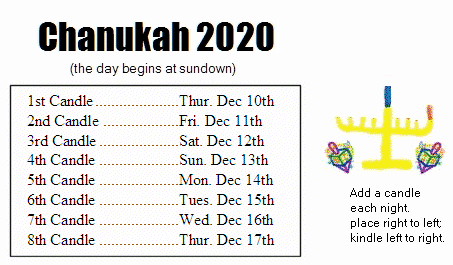
Vayishlach Audio Podcast...

11.29.20 (Kislev 13, 5781) Before he could return from his exile, Jacob had to face his fears and "wrestle" with God. The outcome of the struggle was a blessing, as signified by a new name, "Israel" (יִשְׂרָאֵל), meaning one who who perseveres (שָׂרָה) with God (אֵל). Jacob's story teaches that before we can return from our place of exile, we have to face our fears and wrestle over who we really are. In this week's Torah reading podcast, I review the story of Jacob and how we likewise receive our new name of blessing. I hope you find it helpful.
Hebrew Lesson:
Psalm 51:6 Hebrew Reading (click):
Parashat Vayishlach...

[ We always read Vayishlach a couple weeks before Chanukah when we connect the vision and ministry of Joseph with that of Yeshua, the Suffering Servant Savior of the world... ]
11.29.20 (Kislev 13, 5781) Our Torah portion this week (i.e., parashat Vayishlach) contains the famous account of how Jacob "wrestled" with the Angel of the LORD (מַלְאַךְ יְהוָה) just before he encountered his estranged brother Esau. During the "grappling" session (recall the meaning of Jacob's name), the Angel injured Jacob's thigh, but Jacob refused to release his hold until he received the blessing (הַבְּרָכָה). The LORD then asked him, "What is your name (מַה־שְּׁמֶךָ)?" And he said, "Jacob" (i.e., Ya'akov: יַעֲקב). The Angel then replied, "Your name shall no longer be Ya'akov (i.e., "heel holder" [of Esau]) but Yisrael (i.e., "contender with God"), for as a prince (i.e., sar: שַׂר) you have contended (i.e., sarita: שָׂרִיתָ) with God and with men and have prevailed" (Gen. 32:28). This encounter teaches that Jacob finally received the blessing when he refused to let his past determine his spiritual identity and destiny. With God's help he overcame the pain and shame of his past through faith.
Likewise each of us must "go to Peniel" to wrestle with the Angel, just as each of us must be renamed from Ya'akov ("a supplanter") to Israel ("a prince with God"). When the Spirit of Truth asks, "What is your name," may the LORD God grant you the courage to refuse to "let go" until you receive the divine blessing of love and acceptance...
The word vayishlach (וַיִּשְׁלַח) means "and he sent" (from the verb shalach, שׁלח, "to send"). The sages comment that like Jacob, each person of faith is a shaliach (שָׁלִיחַ), or an "emissary" sent out to bear witness to others of the reality and true blessing of God. And may the LORD God of Israel help you, friend, serve as an extension (שְׁלוּחָה) of His loving and gracious Presence to all you may encounter this day.... L'shavuah tov b'Yeshua Adoneinu, chaverim...
Hebrew Lesson:
Genesis 32:3a Hebrew Reading:
Finding Inner Peace...

11.27.20 (Kislev 11, 5781) The ultimate question is whether you feel "safe" with the truth of who you really are... When you are all alone, in a moment of still silence, when the entire world is asleep and suspended, what is the message of your heart's cry? Are you okay? Do you trust who you are or what is happening to you, or do you experience anxiety, a sense of lostness, inner pain? Comfort is found in God's grace. His promise is given to the sick at heart, to those who understand their need for a physician (Matt. 9:12). Since there is nothing about you to commend before God, you are made free to abandon yourself to the divine love. This is the "Name of the LORD," after all, and your heart's cry for love is a "prayer" uttered in that Name. Your heavenly Father sees in secret (Matt. 6:6). Consider the birds of the air; they are unreflective, alive in the atmosphere of God's care. What a great blessing to let go of your fear; what sweet relief! Surrender to the truth of your helplessness; rejoice that you are "poor in spirit," and discover that yours is the Kingdom of Heaven (Matt. 5:3). So don't give up your faith, my friend. God promises to be with you to the end, leading you to the place where your heart will forever be satisfied in his love.
Hebrew Lesson:
Psalm 29:11 Hebrew Reading:
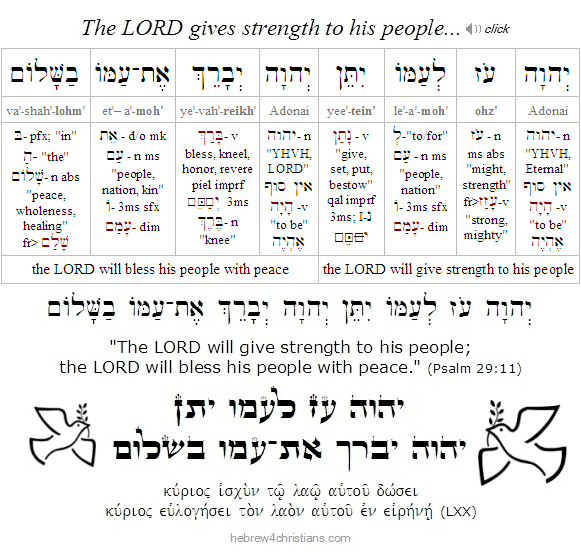 |
Truth and Passion...

11.26.20 (Kislev 10, 5781) During the prophesied "end of days" (אַחֲרִית הַיָּמִים) many people will have an outer "form" (μόρφωσιν) of godliness but will deny its inner power, since their hearts will be turned away from the truth: "And because lawlessness (i.e., ἀνομία, lit. a=without; nomos=Torah) will be increased, the love of many will grow cold" (Matt. 24:12). In this connection we note that the Hebrew word for "falsehood" (or "lie") is sheker (שֶׁקֶר), which can also be read as she-kar (שֶׁקַר), meaning "that which" (-שׁ) makes you cold (קַר). The truth of God can't be known apart from His passion, inner fire, desire. Indeed, the Hebrew word for "sin" (חֵטְא) means "missing the mark," though that essentially means missing the revelation of God's glory because lesser fears consume the heart and cool the passion for the truth... In light of these thoughts, let us ask the LORD to better know His heart by kindling his fire within our hearts!
"Be still and know that I am..." Prayer is a type of listening (shema), a turning back to heed the message of God's love and hope in Messiah. Indeed, the word "teshuvah" (תְּשׁוּבָה), often translated as "repentance," also means an answer or response to a question. God's love is the question, and the heart's response is the answer. Some of us may find it difficult to trust, to open our heart to receive grace and kindness. For those of us wounded by abandonment, it can be a great struggle to hear the voice of God calling you "beloved," "worthy," "valued," and "accepted." When you find faith to receive God's word of love, however, your heart comes alive and you begin to heal...
Hebrew Lesson:
Psalm 46:10 Hebrew Reading:
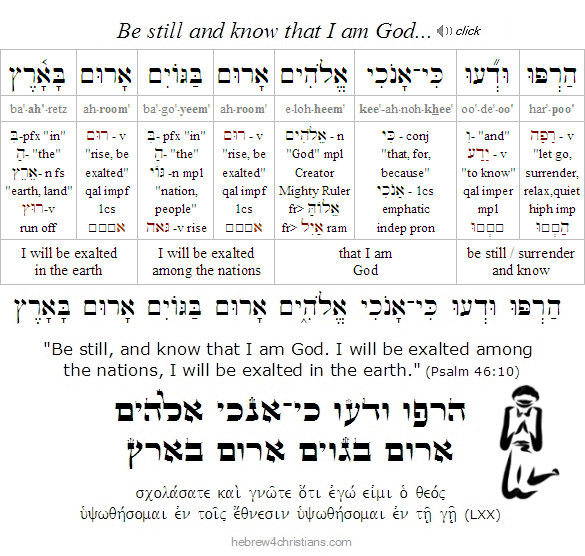 |
Personal Note: There are so many reasons to be thankful... Besides the blessed Lord for the gift of life and his great salvation in Yeshua, and in addition to my dear family, I am also so grateful for those of you who pray for Hebrew for Christians and encourage me in this ministry... I really appreciate you and thank God for your kindness over the years. It sounds like a cliché but it's really true: I couldn't do this work apart from your help, so thank you for standing with me! Shalom and blessings to you all. Happy Thanksgiving!
Gratitude and Seeing...
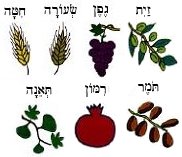
[ Happy Thanksgiving, friends. I am grateful to the Lord that you are a part of this ministry... ]
11.26.20 (Kislev 10, 5781) Gratitude is essential to the life of faith... We read in the Torah: "And you shall bless the LORD your God for the good" (Deut. 8:10). Whenever we derive benefit or enjoyment from something we are to bless (i.e., thank) God for his goodness. Indeed the Hebrew term for gratitude is hakarat tovah (הַכָּרַת טוֹבָה), a phrase that means "recognizing the good." The heart looks through the eye, and therefore how we see is ultimately a spiritual decision: "If your eye is "single" (i.e., ἁπλοῦς, sincere, focused)," Yeshua said, "your whole body will be filled with light" (Matt. 6:22). When we see rightly, we are awakened to God's Presence in the little things of life, those small miracles and "signs and wonders" that constantly surround us. The good eye of faith sees hundreds of reasons to bless God for the precious gift of life (1 Cor. 10:31).
"Give thanks to the LORD for He is good; his love endures forever" (Psalm 136:1); "give thanks to the LORD always" (Col. 3:17; Eph. 5:20; 1 Thess. 5:18)... Gratitude is foundational to our lives as followers of Yeshua. Indeed there are really only two prayers we ever offer to God, namely "Help, LORD!" and "Thank you, LORD." Meister Eckhart once remarked that if the only prayer you said in your entire life was, "thank you," that would suffice... Genuine prayer ultimately resolves to an expression of thanks. We are to "praise the Bridge that carries us over" into the Presence and Love of God, and that Bridge is Yeshua our Lord.
The "thank offering" mentioned in the Torah (i.e., zevach ha-todah: זֶבַח הַתּוֹדָד) is also mentioned in the New Testament. In the Book of Hebrews were are instructed to "continually offer up a sacrifice of thanks (זֶבַח תּוֹדָה) to God, that is, the fruit of lips that acknowledge his Name" (Heb. 13:15). It is interesting to note that the Greek verb used to "offer up" (i.e., ἀναφέρω) is used to translate the Hebrew verb "to draw near" (karov) in Leviticus. In other words, the "offering up of thanks" for the sacrifice of Yeshua functions as "korban" and draws us near to God. Thanking God for personal deliverance constitutes "right sacrifices" (זִבְחֵי־צֶדֶק) as we draw near to God in the hope of His love (Psalm 4:5; Heb. 7:19).
Hebrew Lesson:
Psalm 103:1 Hebrew Reading:
 |
Thanksgiving and Sukkot...
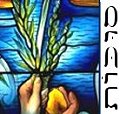
11.25.20 (Kislev 9, 5781) The American holiday of Thanksgiving (חַג הַהוֹדָיָה) likely has its roots in the Jewish tradition of giving thanks to God, and some historians believe that the early "pilgrims" actually derived the idea for the holiday from the Biblical festival of Sukkot (i.e., "the feast of Tabernacles"). Before fleeing to the "New World," the pilgrims lived for a decade among the Sephardic Jews in Holland, since Holland was considered a safe haven from religious persecution at the time. Since the pilgrims were devout Calvinists and Puritans, their religious idealism led them to regard themselves as "new Israel," and it is likely that they learned that Sukkot commemorated the people of Israel's deliverance from their religious persecution in ancient Egypt at that time. After they emigrated to the "Promised Land" of America, it is not surprising that these pilgrims may have chosen the festival of Sukkot as the paradigm for their own celebration. As the Torah commands: "Celebrate the feast so that your generations may know that I made the people of Israel dwell in booths when I brought them out of the land of Egypt: I am the LORD your God" (Lev. 23:39-43). The highly devout pilgrims regarded their perilous journey to the new world as a type of "Exodus event" and therefore sought the appropriate Biblical holiday to commemorate their safe arrival in a land full of new promise...
It is interesting to note that the Hebrew word for "turkey" is tarnegol hodu (תַּרְנְגוֹל הוֹדו), literally, "Indian chicken," which is often shortened to hodu (הוֹדוּ). It is a happy coincidence that we customarily eat turkey on Thanksgiving, and this reminds us of the "thanks" connection: "Give thanks (hodu) to the Lord for he is good," for His love endures forever."
הוֹדוּ לַיהוָה כִּי־טוֹב
כִּי לְעוֹלָם חַסְדּוֹ
ho·doo · la·Adonai · kee-tov
kee · le·o·lahm · chas·do

"Give thanks to the LORD for He is good;
for His love endures forever."
(Psalm 136:1)
Hebrew Study Card

Hebrew Lesson:
Psalm 136:1 Hebrew Reading:
Note: For more on this subject, see "Thanksgiving and Sukkot."
Trust in Dark Hours...

11.25.20 (Kislev 9, 5781) We are living in dark times, perilous days (2 Tim. 3:1-5; 2 Pet. 3:3). The world has become more and more lawless and violent. Many live in dread, sensing that difficult times are ahead. Indeed, with the advent of the Covid pandemic, things are likely never to return to "normal" as the world economy and the global political situation are restructured... These are truly unprecedented times.
Though we might not understand why God allows these things to happen, we nevertheless hold fast to our conviction that the Lord is our Good Shepherd who is restoring our souls. He speaks to us in the midst of uncertainty:
מִי בָכֶם יְרֵא יְהוָה שׁמֵעַ בְּקוֹל עַבְדּוֹ
אֲשֶׁר הָלַךְ חֲשֵׁכִים וְאֵין נגַהּ לוֹ
יִבְטַח בְּשֵׁם יְהוָה וְיִשָּׁעֵן בֵּאלהָיו
mee · va·khem · ye·rei · Adonai · sho·mei'·a · be·kol · av·doh?
a·sher · ha·lakh · cha·she·kheem · ve·ein · no'·gah · loh?
yeev·tach · be·shem · Adonai · ve·yee·sha·ein · be·lo·hahv

"Who among you fears the LORD and obeys the voice of his Servant?
Let him who walks in darkness and has no light
trust in the Name of the LORD and lean upon on his God."
(Isa. 50:10)
Hebrew Study Card

Hebrew Lesson:
Isaiah 50:10 Hebrew Reading:
 |
Friend, the Lord allows the dark cloud of unknowing for his own sovereign purposes, perhaps as a means to teach us to abandon ourselves to his care. Surely God understands our powerlessness; "he remembers our frame, that we are dust" (Psalm 103:14); surely He knows that we cannot see and therefore he calls us to "lean upon Him" for guidance. As we walk through the valley of the shadow of death we find that he is with us, and therefore we must choose to fear no evil.
Trusting in God (i.e., bittachon - בִּטָּחוֹן) does not mean that we are obligated to affirm that this is "the best of all possible worlds," though it does mean we believe that eventually God will wipe away every tear and make all things right. Bittachon is a word for this world, which says, "Though he slay me, I will trust in him..." We do not need to trust for what is seen in this world but for an unseen good (Rom. 8:24). Those who call upon the LORD can trust not only in concealed good behind ambiguous appearances ("all things work together for good") but also in a future, real, substantive good that will one day be clearly manifest for us all... We fight the "good fight" of faith, which is a worthy struggle that eventually is realized for blessing. We die daily; we mortify ourselves and surrender to God's will. Meanwhile, we ask the Lord to be kept from such depth of sorrow that leads to self-destruction and despair....
We must press on without fear, trusting that our faithful LORD will strengthen us for "such a time as this." We must be brave, strongly equipped for battle, and full of conviction that the message of the gospel is the only hope for this moribund and decadent world. We must be on guard lest we fear, for fear is the greatest tool of the enemy of our souls, and therefore we must resist him steadfast and full of divine assurance. "The Lord is faithful: He will establish you and guard you against the evil one" (2 Thess. 3:3). The Spirit says, "Fear not, for I am with you always." The Lord "will sustain you to the end, guiltless in the Day of our Yeshua the Messiah" (1 Cor. 1:8). He who calls you is forever faithful; He will surely do it (1 Thess. 5:24).
If you ask for bread, your heavenly Father will not give you a stone... Only God can deliver us from our "disordered loves" to take hold of what is truly essential. All we can do is ask, and keep on asking - even as we struggle on, despite ourselves, despite our losses... And we often revisit our sins over and over until we become "sick of our sickness," that is, until we begin to understand what our heart really needs. It's as if we are constantly being asked, "Is this what you want?" and our choices confess the truth... Only God does the miracle of real change within the human heart - only God can give life from the dead!
Surrounded by Wonders...

11.25.20 (Kislev 9, 5781) "The works of the LORD are great, sought out by all who desire them" (Psalm 111:2). This refers to the various "natural" phenomena that surround and pervade our existence (and indeed to the Ground of existence itself), which no finite being has the power to duplicate. Such matters are "sought out by all who desire to know them" (דְּרוּשִׁים לְכָל־חֶפְצֵיהֶם), that is, they are accessible to the observant heart and testify to the divine wisdom of the Creator (Rom. 1:20; Deut. 4:29). The works of the LORD are understood "in the secret of the upright ones" (בְּסוֹד יְשָׁרִים) and are perceived by the heart of faithful (Psalm 111:1). Hod ve'hadar pa'olo: "majestic and splendid is His work; and his righteousness endures forever" (Psalm 111:3). Many people, alas, sleepwalk through their days, oblivious to the sacred wonders about them. Even though God's gifts abound and pervade all existence, they are taken for granted and go by unseen and unnoticed. Many blandly assume the future will resemble the past, that the sun will rise tomorrow, without considering the majestic significance of the sun itself, its being and presence. After all, just because something happens every day doesn't make it any less wonderful, of course. People create labels and concepts to generalize their experiences, though often this creates habits of mind that lull the soul to sleep... Indeed some people regard "boredom" to be the greatest evil in life, and they are right – being bored over the sacred gift of life is indeed a great evil!
גְּדלִים מַעֲשֵׂי יְהוָה
דְּרוּשִׁים לְכָל־חֶפְצֵיהֶם
ge·do·leem · ma·a·sei · Adonai
de·roo·sheem · le·khol - chef·tzei·hem

"Great are the works of the LORD,
sought out by all who delight in them."
(Psalm 111:2)

Hebrew Lesson:
Psalm 111:2 Hebrew Reading:
The Time of Visitation...

11.24.20 (Kislev 8, 5781) We must ready our hearts for the time of the Lord's coming, for the hour draws near... Yeshua lamented over Israel: "You did not recognize the time of your visitation..." (Luke 19:44). But how was it possible for otherwise devoutly religious people to miss the advent of the Messiah were it not because they disregarded the signals meant to awaken them? "So also, when you see all these things, you know that he is near, at the very gates" (Matt. 24:33). That's part of the message of teshuvah as well: Repent and believe the message of life (see Heb. 3:7-4:11). Esau "repented" with tears, but his wasn't true repentance since he did not turn his heart to embrace the truth of God's love... True repentance leads to healing and life. When the woman from Magdala wept and washed Yeshua's feet with her tears, he said to those present, "I tell you, her sins, which are many, are forgiven -- for she loved much" (Luke 7:44-48). In other words, she was lavish in her love because she deeply regretted that she had missed what was most important, what she desperately needed all along... She saw her sin as blindness to God's love... After all, why would she weep over her sins unless she loved him? And how could she love him unless he first revealed his love to her? (1 John 4:19). Friends, the Kingdom of God is at hand: wake up and be ready for the advent of the King! The sound of the shofar reminds us that the great Day of the LORD is drawing near and soon we will see our King Yeshua.
Hebrew Lesson:
Proverbs 1:23 Hebrew Reading:
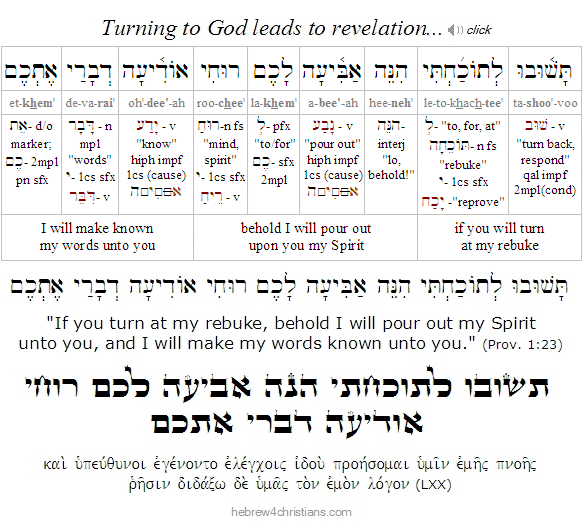 |
Keep on Trusting...

11.24.20 (Kislev 8, 5781) When Yeshua said, "Let not your heart be troubled... I go to prepare a place for you" (John 14:1-2), he was assuring us that he had matters well under his control, and therefore we need not worry, since his passion rendered our salvation completely secure... The future is a "prepared place" for you, even if life in this world is often marked by testing and various refining fires. God has not promised to rescue us according to our own schedule, however, so if it appears that your prayers are not immediately answered, keep waiting in faith: "Rejoice, even if you have been grieved by various trials, because the tested genuineness of your faith -- more precious than gold that perishes though it is tested by fire -- may result in praise and glory and honor at the revelation of Yeshua the Messiah" (1 Pet. 1:6-7). God works "all things together for good," and since the exercise of faith is your good, he engineers all things to build your faith. "For my thoughts are not your thoughts, neither are your ways my ways, says the LORD" (Isa. 55:8).
Recall the words: "Let him who walks in darkness and has no light trust in the name of the LORD and rely on his God" (Isa. 50:10). Trusting in God (i.e., bittachon - בִּטָּחוֹן) doesn't mean that we are obligated to say this is "the best of all possible worlds," though it does mean we believe that eventually God will wipe away every tear and make all things right... Bittachon is a word for this world, which says, "Though he slay me, I will trust in him..." Those who call upon the LORD can trust not only in concealed good behind ambiguous appearances ("all things work together for good") but also in a future, real, substantive good that will one day be clearly manifest for us all... We fight the "good fight" of faith, which is a worthy struggle that eventually is realized for blessing. Meanwhile, may the LORD our God keep us from such depth of sorrow that leads to sickness, darkness and despair.
בטחו ביהוה עדי־עד
כי ביה יהוה צור עולמים
beet·choo · va·Adonai · a·dei–ad
kee · be·Yah · Adonai · tzoor · oh·lah·meem

"Trust in the LORD forever,
for in Yah the LORD is everlasting strength."
(Isa 26:4)

Hebrew Lesson:
Isaiah 26:4 Hebrew Reading:
The last promise of Scripture is "I come quickly" (אֲנִי בָא מַהֵר) and the last prayer is, "Amen, come, Lord Yeshua" (אָמֵן בּאָה־נָּא הָאָדוֹן יֵשׁוּעַ) [Rev. 22:20]. Meanwhile we "inwardly groan" for the fulfillment of our redemption, since presently we are suspended between worlds, walking in hope yet subject to the vanities that befall all flesh... And though God may tarry, He declares, "I am the LORD; in its time I will hasten it" (Isa. 60:22). So we are made captives to hope, clinging to the promise of our ultimate healing and redemption. Our hearts therefore affirm that God is faithful "to keep you from falling, and to present you faultless before the presence of his glory with exceeding joy" (Jude 1:24). Amen. God will help us before He will help us, and may He come speedily, and in our day....
Hebrew Lesson:
Psalm 23:4a Hebrew Reading:
Our Duty to Truth...

11.24.20 (Kislev 8, 5781) Like most things that are important for our spiritual lives, this bears repeating: Those who follow Yeshua the Messiah are responsible to love and walk in truth and to abhor and reject what is false (1 John 4:6). This implies that we have a moral and spiritual duty to think clearly and not to abuse our minds (Phil. 4:8; Rom. 12:2). The LORD our God will help us to do this, as Yeshua said: "I will ask the Father, and he will give you a Helper (παράκλητος, someone "called to one's side"), to be with you forever, even the Spirit of Truth (i.e., ruach ha'emet: רוּחַ הָאֱמֶת), whom the world cannot receive, because it neither sees him nor knows him" (John 14:16-17). The Spirit of Truth helps us "discern what is the will of God, what is good, acceptable, and perfect" (Rom. 12:2) and empowers us to take "every thought captive" to the reality of the Divine Presence (2 Cor. 10:4-5). Truth is connected to memory - both in our personal histories as well as the history of God's redemptive actions performed on our behalf. Truth is described as "a-letheia" (ἀλήθεια), literally meaning "not forgetfulness..." Hence we are constantly commanded to remember what God has done for us and to "diligently repeat" (ושׁננתם) the truth to our children (Deut. 6:4-9). Similarly, the Spirit of Truth brings to remembrance the words of Yeshua to our hearts (John 14:26).
Hebrew Lesson:
Proverbs 22:6 Hebrew Reading with comments:
Followers of Yeshua are commanded to love the truth and to think clearly about their faith. The ministry of reconciliation (τὴν διακονίαν τῆς καταλλαγῆς) is defined as "the word of truth, by the power of God, through weapons of righteousness" (2 Cor. 5:18, 6:7). Indeed, the word of truth (τὸν λόγον τῆς ἀληθείας) is a synonym for the "gospel of salvation" itself (Eph. 1:13; Col. 1:5; James 1:18). We are saved by Yeshua, who is the "way, the truth, and the life" (John 14:6). God commands all people to believe this truth (Acts 17:30-31; 1 Tim. 2:4). People perish because "they refuse to love the truth and so be saved" (2 Thess. 2:10-12). Therefore we see that the issue of truth is central to salvation itself....
Genuine teshuvah (repentance) implies that we will change our thinking in order to be transformed by God's truth. The follower of Messiah "cannot do anything against the truth, but only for the truth" (2 Cor. 13:8). During this season before the return of the Lord, may God help us all to think clearly and to turn our thoughts to Him. May He protect us from the vanity of a darkened mind and from all distractions that attempt to seduce us away from Him. May the LORD give us the purity of heart to know and do His will in the truth. Amen.
Jacob's Great Awakening...

[ The following is related to this week's Torah reading, Parashat Vayetzei... ]
11.23.20 (Kislev 7, 5781) In our Torah portion we read: "Then Jacob awoke from his sleep and said, akhen yesh Adonai ba'makom ha'zeh, ve'anokhi lo yadati: 'Surely the LORD is in this place, but I did not know it'" (Gen. 28:16). Jacob had been asleep but was jarred awake. He found himself in awe, sensing the presence of the gateway to heaven. The sages note the grammar here is emphatic, suggesting that Jacob said: "Surely the LORD is in this place -- but am I (וְאָנכִי)? I do not know! (לא יָדָעְתִּי). Jacob had awakened from his dream to realize that he had been dreaming his life away, living in a fantasy world. God is present in this place – but am I? Have I awakened to be present before God?
All religious reality begins with what biblical religion calls the 'fear of God.' It comes when our existence between birth and death becomes incomprehensible and uncanny, when all security is shattered through the mystery. This is not the relative mystery of that which is inaccessible only to the present state of human knowledge and is hence in principle discoverable. It is the essential mystery, the inscrutableness of which belongs to its very nature... Through this dark gate (which is only a gate and not, as some theologians believe, a dwelling) the believing man steps forth into the everyday which is henceforth hallowed as the place in which he has to live with the mystery. He steps forth directed and assigned to the concrete, contextual situations of his existence. That he henceforth accepts the situation as given him by the Giver is what Biblical religion calls the 'fear of God.' - Martin Buber, Eclipse of God
An honest theology must find a place for mystery, for "seeing through a glass darkly," and for the apprehension of awe and wonder. Philosophy (not science) asks the question: "Why is there something rather than nothing at all?" This is a question regarding the "why" of existence itself, the profusion of life as it surrounds us. Is there a reason for existence, a purpose, a direction, a radical meaning? Faith "sees what is invisible" by experiencing reality as revelation: the mystery of life points beyond itself to God's creative and sustaining presence: "In Him we live and move and have our being" (Acts 17:28; Rom. 1:20). Cut open a seed and what do you see, but "the hidden power that makes the fruit grow toward the sky." Likewise what is most real about us is shrouded in profound mystery. We are finite, our lives are short and bounded by darkness, yet we sense God's Spirit, the hidden power that upholds our souls, and we trust that we will indeed live forever because of God's love. As theologian Paul Tillich wrote: "The question of being is not the question of any specific being, its existence and nature, but it is the question of what it means to be. It is the simplest, most profound, and absolutely inexhaustible question – the question of what it means to say something is. The word "is" hides the riddle of all riddles, the mystery that there is anything at all." Though we might try to explain God by way of logic and doctrine, in the end it is the mystery of "Messiah in you - the hope of glory."
When God said, "Let there be light, and there was light" (Gen. 1:3), He seemed to put on light as a robe of the Divine Majesty and Kingship: He wrapped Himself with radiance as a tallit gadol... Da lifnei mi attah omed (דַּע לִפְנֵי מִי אַתָּה עוֹמֵד) – "Know before whom you stand." The whole earth is lit up with God's glory, and every bush of the field is aflame before us -- if we have eyes to see (Isa. 6:3). May it please the LORD to open our spiritual eyes so that we can behold more of His glory and majesty in this hour... Amen.
Hebrew Lesson:
Gen. 28:16b Hebrew Reading:
Jacob's Great Dream...
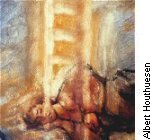
11.23.20 (Kislev 7, 5781) In our Torah portion this week (parashat Vayetzei), we read that when Jacob fled from his home in Canaan, he "came upon a certain place and stayed there that night" (Gen. 28:11). The Hebrew text, however, indicates that Jacob did not just happen upon a random place, but rather that "he came to the place" -- vayifga ba'makom (וַיִּפְגַּע בַּמָּקוֹם). The sages therefore wondered why the Torah states ba'makom, "the place," rather than b'makom, "a place"? Moreover, the verb translated "he came" is yifga (from paga': פָּגַע), which means to encounter or to meet, suggesting that Jacob's stop was a divine appointment.
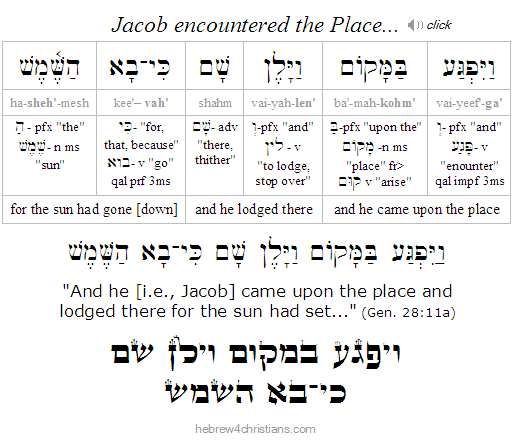 |
The Torah then relates that Jacob laid down to sleep, "and he dreamed, and behold, there was a ladder set up on the earth, and the top of it reached to heaven. And behold, the angels of God were ascending and descending on it! And behold, the LORD stood above it and said, "I am the LORD, the God of Abraham your father and the God of Isaac. The land on which you lie I will give to you and to your offspring. Your offspring shall be like the dust of the earth, and you shall spread abroad to the west and to the east and to the north and to the south, and in you and your offspring shall all the families of the earth be blessed. Behold, I am with you and will keep you wherever you go, and will bring you back to this land. For I will not leave you until I have done what I have promised you" (Gen. 28:12-15).
The Hebrew word makom ("place") comes from the verb kum (קוּם), meaning "to arise," and in Jewish tradition, ha-makom became a Name for God. The early sages therefore interpreted the place to refer to Jerusalem, and the Talmud further identifies "the place" Jacob encountered as Mount Moriah - the very location of the great Akedah - based on the language used in Genesis 22:4: "On the third day, Abraham raised his eyes and saw the place (i.e., ha'makom: הַמָּקוֹם) in the distance" (Sanhedrin 95b, Chulin 91b). If that is the case, then Jacob's dream of the ladder would have functioned as a revelation of the coming glory of the resurrected Messiah - the Promised Seed whom Isaac foreshadowed and through whom all the families of the earth would be blessed. It was Yeshua, the Angel of the LORD, who came to "descend" (as the Son of Man) and to "rise" (as the resurrected LORD) to be our mediator before God (see John 1:47-51). Perhaps the Talmud makes the claim that Jacob's vision occurred in Jerusalem because Bethel later became the site for one of two idolatrous shrines (i.e., the golden calves at Bethel and Dan) established by King Jeroboam of the Northern Kingdom which he set up to discourage worship at Solomon's Temple in the City of Jerusalem (see 1 Kings 12:28-29).
At any rate, the Hebrew word for "intercessor" (i.e., mafgia: מַפְגִּיעַ) comes from the same verb (paga') mentioned in our verse. Yeshua is our Intercessor who makes "contact" with God on our behalf. Through His sacrifice for our redemption upon the cross (i.e., his greater Akedah), Yeshua created a meeting place (paga') between God and man. Therefore we see the later use of paga' in Isaiah 53:6, "...the Lord laid on him (i.e., hifgia bo: הִפְגִּיעַ בּוֹ) the iniquity of us all," indicating that our sins "fell" on Yeshua as He made intercession for us (i.e., yafgia: יַפְגִּיעַ) for us (Isa. 53:12). Because of Yeshua, God touches us and we are able to touch God... And today, our resurrected LORD "ever lives to make intercession (paga') for us" (Heb. 7:25). He is still touched by our need and sinful condition (Heb. 4:15).
Hebrew Lesson:
Isaiah 53:6 Hebrew Reading:
Paga' is also a term for warfare or violent meetings, and this alludes to the collision between the powers of hell and the powers of heaven in the outworking of God's plan of redemption: "... he (i.e., the Savior/Messiah) will crush your head (ראשׁ), and you (i.e., the serpent/Satan) will crush his heel (עָקֵב)." This was the original prophecy of redemption, an encounter with evil that would provide atonement and retribution (see "The Gospel in the Garden").
Hebrew Lesson:
Gen. 3:15b Hebrew Reading:
The revelation at Sinai and Jacob's vision of the ladder share something in common. Just as Yeshua was the "Voice of the Living God (קוֹל אֱלהִים חַיִּים) speaking (davar) from the midst of the fire" at Sinai (Deut. 5:26), so He was the Ascended LORD standing above the ladder speaking the word of promise (Gen. 28:12-15). In this connection we note that the words for "ladder," (i.e., sullam: סֻלָּם), "voice" (i.e., kol: קל), and "Sinai" (סִינָי) have the same numerical value, which suggests a connection between the two great visions. Yeshua is the Ladder to God, the means by which the Living Torah both descends and ascends for the sake of our deliverance (John 1:51). The "ladder of Sinai" is not meant for us to ascend but rather is for the LORD our Savior to descend and ascend on our behalf. This is always the way of the Righteousness of God rather than the religious aspiratoins of man... Yeshua is the way, the truth, and the life (הדֶּרֶךְ וְהָאֱמֶת וְהַחַיִּים): no one can draw near to the Heavenly Father apart from Him (John 14:6). For more on this see: Jacob's Dream of Messiah: Further thoughts on Vayetzei.
Seeing the Unseen...

11.23.20 (Kislev 7, 5781) Yeshua told us: "Blessed are those who have not seen and yet have believed" (John 20:29). Despite the struggle of this life - our sorrows, pains, and even death itself - we believe in God's love and promise for us, even if we do not presently see the fulfillment of our hope, just as Abraham believed the promise that he would be the father of an innumerable multitude long before he saw any sign of its fulfillment. Abraham "believed the impossible" and "hoped against hope" (παρ᾽ ἐλπίδα ἐπ᾽ ἐλπίδι), meaning that hope kindled within him even though there was nothing to see in the realm of the natural -- he believed in an unseen good; he trusted in the One who gives life to the dead and who "calls into existence the things that do not exist" (Rom. 4:17). The Scripture comments: "He did not weaken in faith when he considered his own body, which was as good as dead (since he was about a hundred years old), or when he considered the deadness of Sarah's womb. He did not stumble over the promise of God through unbelief but was strong in faith, and gave glory to God, fully persuaded that God was able to do what he had promised, and that is why his faith was counted to him as righteousness" (Rom. 4:19-22).
Likewise we are called to believe in an unseen good, an unimaginably wonderful destiny for our lives, as it says, "Things no eye has seen, nor ear heard, nor mind imagined, are the things God has prepared for those who love him" (1 Cor. 2:9). Faith does not use natural reason or the evidence of the senses to see the unseen, but it "believes to see" through "eyes of the heart" to know the hope of God's calling and to attain the blessing (Eph. 1:18). Faith in God's love comes from a different source and has a different means of apprehension than human wisdom, so that no matter how things might appear in this fallen world, the LORD God may be known and trusted to work all things for our ultimate good. "Blessed are those who have not seen and yet have believed." Amen.
Hebrew Lesson:
Psalm 27:14 Hebrew Reading:
Parashat Vayetzei - וַיֵּצֵא
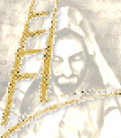
11.22.20 (Kislev 6, 5781) Our Torah portion for this week (i.e., parashat Vayetzei) includes Jacob's dream of a ladder (סֻלָּם) extending from earth to heaven, with the angels of God ascending and descending, and the LORD Himself standing above assuring Jacob of his safe return to the land he had fled. Jacob awoke and responded to the dream with awe: "Surely the LORD is in this place (בַּמָּקוֹם הַזֶּה), and I did not know it." And he was afraid and said, "How awesome is this place! This is none other than the house of God, and this is the gate of heaven." And he called the name of that place Bethel (בֵּית־אֵל) i.e., "the house of God."
The sages interpret ha-makom (הַמָּקוֹם), literally "the place" that Jacob saw, as Mount Moriah, the exact location where Jacob's father Isaac was bound as the "sacrificed seed" and which later became the site of the Holy Temple. Indeed the word makom comes from a verb (קוּם) meaning "to arise," suggesting resurrection and ascension. In later Rabbinical thought Ha-Makom became synonymous with the Name or Presence of God Himself ("God is the place of the world, but the world is not God's only place").
Yeshua referred to Jacob's dream when he said, "Truly, truly, I say to you, you will see heaven opened, and the angels of God ascending and descending on the Son of Man" (John 1:51). Just as Jacob saw the ladder ascending to heaven with the angels of God ascending and descending upon it, so Yeshua told Nathanael that He was the Ladder to God, the sha'ar ha-shamayim (שַׁעַר הַשָּׁמָיִם) - the way into heaven (John 14:6). Indeed, Yeshua is the true Place or "house of God" and its Chief Cornerstone (Rosh Pinnah, Matt. 21:42). The LORD is the resurrection and life, the One who prepares a place for you (John 11:25; 14:2).
Seeing what we want to see...
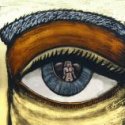
11.20.20 (Kislev 4, 5781) We often see what we want to see... From our Torah portion this week (i.e., Toldot) we read: "Now Jacob was simmering stew when Esau came in from the field, famished" (Gen. 25:29). The Midrash Rabbah comments that Esau saw the stew and asked why it was being cooked. He was told that it was a traditional mourner's meal because his grandfather Abraham had just died. Upon hearing this, Esau quickly became offended that one so righteous as Abraham had died and exclaimed: "If that's the case, there is no reward for one's good deeds, and no repair from death..." In this way Esau's offence over sorrow and suffering moved him to reject reality as being inherently unjust, and by this logic he justified his godless lifestyle... Because bitterness took root within his heart, Esau despised his birthright and spurned the very significance of his life (Heb. 12:15-16).
Jewish post-Holocaust theology (i.e., "theology after Auschwitz") has wrestled with these sorts of harrowing and disturbing questions, though on a far larger and more traumatic scale. How could an all-loving, all-knowing, and all-powerful God allow (or permit) the horrors of the Shoah? For many Jews, the Holocaust marked the practical end of their faith, while for others it marked the start of a "theology of protest." In either case, however, the horrific reality of the Holocaust requires an authentic response from all of us. Providing an intellectual theory about the "problem of evil" seems empty and even irreverent in the face of such unspeakable acts of cruelty. Beware of any theology that denies the reality and heartache of human suffering. Yeshua offered up "loud cries and tears" during the days of his flesh, and he wept over the pain others experienced (Heb. 5:7, John 11:35).
In Fyodor Dostoyevsky's novel The Brothers Karamazov (1880), Ivan Karamazov argued with his devout brother Alyosha regarding the nature of faith. Ivan intellectually accepted God's existence, His wisdom, and His heavenly goal to ultimately save an alienated world, but he nonetheless challenged the idea that any future good -- even if it should be "beyond all the heart's imaginings" (1 Cor. 2:9) -- could ever "atone for" the present evil and manifold suffering found in this world. To make his point, Ivan needed to find just one case of entirely "gratuitous evil" - an irrefutable counterexample to the viewpoint that this is the "best of all possible worlds." He therefore listed a number of cases of extreme and excessive cruelty in the world, but he finally focused on a heart-wrenching account of a five year old girl who was chained to an outhouse and left to die in the Russian winter. No matter what might be offered in the way of "defense" of God, no "future good" could possibly justify the suffering of this child. Despite the hopeful theory that God will one day "wipe away every tear," Ivan stated that he could never accept the nature of this-worldly reality: "I refuse to accept this world of God's... Please understand, it is not God that I do not accept, but the world he has created. I do not accept God's world and I refuse to accept it."
Such is the essence of the "offense" (σκάνδαλον) held within the faithless and fearful heart, an offense that objects over the decrees of God and therefore over the nature of reality itself. It is a protest, a generalized objection, to the "drama" of the universe decreed by God to be a place of suffering and pain that ultimately leads to redemption.... Spiritually speaking, this offence is the deep despair called the "sickness unto death." We are therefore warned by the Spirit of God: "See to it that no one fails to obtain the grace of God; that no root of bitterness (שׁרֶשׁ פּרֶה) springs up and causes trouble, and by it many become defiled; that no one is immoral or profane like Esau, who sold his birthright for a single meal. For you know that afterward, when he desired to inherit the blessing, he was rejected, for he found no chance to repent, though he sought it (the blessing) with tears" (Heb. 12:15-17; Gen. 27:38).
"The optimist believes that this is the best of all possible worlds; the pessimist believes the optimist is right..." The facts remain the same for both, but what is different is something within the heart, something that moves the will to no longer recoil from the world but rather to accept it. Faith is a type of courage, a willingness to take risks, even in the midst of ambiguity. It surrenders to God's plan and will, even if that plan makes no sense at the moment. Of course it is intellectually "safer" to refrain from such trust and to yield to a "hermeneutic of suspicion." It is woefully easy to play the skeptic, to toy with ultimate questions, to affect intellectual superiority -- but at what cost? Is the supposed "defense" against being mistaken more important the risk of commitment? Isn't such an approach to life essentially a form of cowardice? Without risk, we would never marry, have children, or take hold of our dreams. Some people might dismiss the dream of God's love as nonsense and futility, but the Scriptures make it clear that such hope represents the very substance (ὑπόστασις) of our faith (Heb 11:1).
Hebrew Lesson:
Psalm 18:26 Hebrew Reading (with comments):
Note: For more on this subject see "Musings about Suffering," and "The Power of Hope."
Deliver us from Offence...
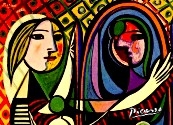
11.20.20 (Kislev 4, 5781) Yeshua forewarned that just before the End of Days, "many shall be offended, and shall betray one another, and shall hate one another" (Matt. 24:10). What dreadful people, you might imagine... what terrible depravity will mark that time! And yet here we are today, with so many crusading for their own personal sense of victimhood, demanding special treatment, and threatening retaliation for being treated unfairly... It must be remembered, however, that whenever we find offence in others, we are reflecting the evil within ourselves (Matt. 7:1-5). What is this evil within you ask? How about being intolerant toward those who differ from us? How about be impatient – refusing to allow others to share their perspectives? Indeed, how many of us make the demand that others be "perfect" but turn a blind eye to our own imperfections? And what about the sin of unforgiveness? What about our attitude of suspicion -- using the "evil eye" regarding others' motives – looking for something impure – rather than extending to them the benefit of the doubt? Do you carry resentment with your heart? Do you hold on to a grudge over a real (or imagined) insult from the past? Do you harbor the desire to seek revenge? All of these evil attitudes are symptomatic of hardhearted unforgiveness, and failing to remember that all that is good in your life you owe exclusively to the mercy of God alone... When you feel offended, look within and carefully consider the assumptions at work in your thinking. Ask whether your indignation is based on the truth of God or something else. Are you demanding: "My will be done, in heaven as it is on earth?" Are you seeking your own vision, or surrendering to the truth of Reality?
It is written, "Whoever diligently seeks good seeks favor, but evil comes to him who searches for it" (Prov. 11:27). The one who seeks good is called shocher tov (שׁחֵר טוֹב), "a seeker of good." The shocher tov uses the "good eye" (ayin ha'tovah) to see worth and potential in others. The one who searches out evil, on the other hand, is called doresh ra'ah, "a searcher of evil." The doresh ra'ah has an evil eye (ayin ha'ra) that is "stingy," critical and faultfinding. The proverb may therefore be stated this way: When you seek the good of others, you will find God's favor (ratzon), but when you search for evil in others, it becomes your own. As the Baal Shem Tov once said, "When we see faults in others, we must understand that they only reflect the evil within ourselves." Likewise King David said, וּתְפִלָּתִי עַל־חֵיקִי תָשׁוּב, "my prayer shall turn back upon my breast" (Psalm 35:13). Some prayers are conscious words spoken to God, whereas others are expressions of heart attitudes. Our proverb teaches that when we harbor indifference, ill will, or resentment toward others, we hurt ourselves; when we favor others and desire their blessing, on the other hand, we will find God's favor and blessing. Tov ayin hu yevorakh: "The one with the good eye will be blessed" (Prov. 22:9; Matt. 6:22).
שׁחֵר טוֹב יְבַקֵּשׁ רָצוֹן
וְדרֵשׁ רָעָה תְבוֹאֶנּוּ
sho·cheir · tov · ye·va·keish · ra·tzohn
ve·do·reish · ra·ah · te·vo·e'·noo

"Whoever diligently seeks good seeks favor,
but evil comes to him who searches for it." (Prov. 11:27)

Hebrew Lesson:
Proverbs 11:27 Hebrew Reading (click):
Addendum:
Someone might object by saying that it is not right to overlook the evil we see in others, for example, the unjust practices of deceptive and immoral politicians, or the actions of criminals who commit acts of lawlessness. When we see evil, how do we see the good instead? Should we ignore wickedness and close our eyes to what is happening?
Well of course we should uphold law and the prosecution of criminals, and we should admonish (and sometimes even rebuke) our brothers and sisters when they sin, but in an ultimate sense, we have to see past the evil, to let it pass, in trust that God is sovereign and orders all things according to his sovereign purposes -- and that implies understanding that God suffers evil to exist in order to demonstrate his judgment, as it says: "The LORD has made all things for its purpose -- even the wicked for the day of evil" (Psalm 16:4).
Hebrew Lesson:
Proverbs 16:4 Hebrew reading (with comments):
Draw near in your need...

11.20.20 (Kislev 4, 5781) "Draw near to God, and he will draw near to you" (James 4:8). There are no conditions given here -- other than your raw need to connect with God for help. "Purify your hearts, you double-minded ones" (δίψυχοι, lit. "two-souled ones"); make up your mind and be unified within your heart: "How long will you go limping between two different opinions?" (1 Kings 18:21). You are invited to come; God has made the way; your place at the table has been set and prepared. "Let us draw near with a sincere heart in full assurance of faith (ἐν πληροφορίᾳ πίστεως), with our hearts sprinkled clean from an evil conscience and our bodies washed with pure water. Let us hold fast the confession of our hope without wavering, for he who promised is faithful" (Heb. 10-22-23).
Hebrew Lesson:
Isaiah 55:6 Hebrew reading (click):
The Prerogatives of God...
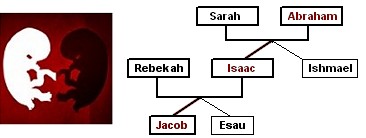
[ The following is related to this week's Torah reading, parashat Toldot... ]
11.20.20 (Kislev 4, 5781) The Haftarah for parashat Toldot begins: "I have loved you," says the LORD. But you say, "How have you loved us?" "Is not Esau Jacob's brother?" declares the LORD. "Yet I have loved Jacob but Esau I have hated. I have laid waste his hill country and left his heritage to jackals of the desert" (Mal. 1:1-3; cp. Rom. 9:9-13). Some people may find God's sovereign choice objectionable, though we know there is no unrighteousness in God's decrees and ways (Deut. 32:4; Psalm 18:30; James 1:17, etc.). Therefore Yeshua told his followers, "You did not choose me, but I chose you and appointed you to go forth and bear fruit..." (John 15:16). Religious pride recoils at these words, thinking, "I don't want to be chosen by God; I want to be in control; I want to choose God first." The ego seeks some reason for revelation, some merit that commends the self to God. It's hidden assumption is, "thank you, God, that I am not like other men" (Luke 18:11). The choice of God is scandalous because it is based on God's love, not our own (1 John 4:19). We were spiritually reborn, not as the result of anything in the realm of nature, nor even through our personal decision, but solely on account of God's sovereign prerogative (John 1:13). This is the message of the choice of Jacob over Esau in our Torah portion this week. Regarding this the New Testament comments: "Though they (i.e., Jacob and Esau) were not yet born and had done nothing either good or bad -- in order that God's purpose of election might stand (ἵνα ἡ κατ᾽ ἐκλογὴν πρόθεσις τοῦ θεοῦ μένῃ), not because of works but because of the One who calls, Rebekah was told, "the older will serve the younger" (Rom. 9:11-12). The carnal ego is quick to look for reasons that God chooses people, looking for merit or considering their worldly potential, though it is idolatrous to elevate the self this way. "Not by might nor by power, but by my spirit, says the LORD of Hosts" (Zech. 4:6). We don't seek to please God so that we can be chosen; we are chosen so that we can seek to please him... God's grace and love for us is always the starting point: "Lord, teach us to pray," that is, choose words for us, the groaning of your Spirit, in accordance with your perfect will...
Over the years I have repeatedly affirmed the "salvation is of the LORD" (לַיהוָה הַיְשׁוּעָה), and therefore we are not saved "by works of righteousness (מַעֲשֵׂי הַצְּדָקָה) that we have done, but solely on account of the mercy given to us in God our Savior (אֱלהִים מוֹשִׁיעֵנוּ; Titus 3:4-5). Grace excludes all boasting (Eph. 2:9; Rom. 4:4). We believe that God justifies the ungodly (helpless) by trusting in his heart of compassion (Rom. 4:1-8). God loves us with "an everlasting love" (i.e., ahavat olam: אַהֲבַת עוֹלָם) and draws us in chesed (חֶסֶד, i.e., His faithful love and kindness). As it is written: "I love you with an everlasting love; therefore in chesed I draw you to me" (Jer. 31:3). Note that the word translated "I draw you" comes from the Hebrew word mashakh (מָשַׁךְ), meaning to "seize" or "drag away" (the ancient Greek translation used the verb helko (ἕλκω) to express the same idea). As Yeshua said, "No one is able to come to me unless he is "dragged away" (ἑλκύσῃ) by the Father (John 6:44). God's chesed seizes us, scandalizes us, takes us captive, and leads us to the Savior... Spiritual rebirth is a divine act, "not of blood nor of the will of the flesh nor of the will of man, but of God" (John 1:13). In everything - including human reason itself - the LORD God Almighty is preeminent. Dear friend, if God has chosen you to be in covenant with him, then you are indeed one of the "chosen people."
Hebrew Lesson:
Jeremiah 31:3b Hebrew reading (click):
Therefore we can affirm the great benediction given in our Scriptures: "Blessed be the God and Father of our Adonai, Yeshua the Messiah, who has blessed us in Messiah with every spiritual blessing in the heavenly places, even as he chose us in him before the foundation of the world (καθὼς ἐξελέξατο ἡμᾶς ἐν αὐτῷ πρὸ καταβολῆς κόσμου), that we should be holy and blameless before him. In love he predestined us (προορίσας ἡμᾶς) for adoption as sons through Yeshua the Messiah, according to the purpose of his will, to the praise of his glorious grace, with which he has blessed us in the Beloved; in whom we have redemption through his blood, the forgiveness of our trespasses, according to the riches of his grace, which he lavished upon us, in all wisdom and insight..." (Eph. 1:3-8).
It is the fruit of his Spirit, not the fruit of our own that matters (Gal. 5:22-23). As Yeshua said, "it is the Spirit who gives life; the flesh is no help at all" (John 6:63). We are God's workmanship, created in the Messiah for good works, which God prepared beforehand that we should walk in them" (Eph. 2:10). We are able to live for God through the agency of His love and sustaining grace, all for the sake of the glory of His Name. "For from Him and through Him and to Him are all things. To Him be glory forever. Amen" (Rom. 11:36).
Hebrew Lesson:
Proverbs 16:4 Hebrew reading (with comments):
Note: I have been sick the last few days, and I am also pretty exhausted from the raging spiritual warfare all around us. Please pray for strength to continue, friends. Thank you.
Two Blessings for Jacob...

[ The following is related to this week's Torah reading, parashat Toldot... ]
11.20.20 (Kislev 4, 5781) When we think of Jacob as a young man, we tend to recall the dramatic episode when he surreptitiously disguised himself as Esau to "steal" the blessing from his father Isaac. As we study our Torah reading, however, we learn that Jacob actually received two blessings from his father. The first blessing -- given to a disguised Jacob -- focused on material blessings: the "dew of heaven," the "fatness of the earth," "plenty of grain and wine," political power and hegemony (Gen. 27:28-29), whereas the second blessing -- given to an undisguised Jacob -- focused on his role as God's chosen patriarch of Israel (Gen. 28:3-4). The difference between these blessings turned on Isaac's restored vision. His first blessing was tailored to the character of Esau as his "natural choice," whereas his second blessing looked beyond mere appearances to behold the vision that was originally given to his father Abraham:
וְאֵל שַׁדַּי יְבָרֵךְ אתְךָ
וְיַפְרְךָ וְיַרְבֶּךָ וְהָיִיתָ לִקְהַל עַמִּים
וְיִתֶּן־לְךָ אֶת־בִּרְכַּת אַבְרָהָם
לְךָ וּלְזַרְעֲךָ אִתָּךְ
ve·el · Shad·dai · ye·vah·rekh · oht·kha
ve·yaf'·re·kha · ve·yar·be'·kha · ve·ha·yee'·ta · leek·hal · a·meem
ve·yee·ten · le·kha · et · beer·kaht · av·rah·hahm
le·kha · ool·zar·a·kha · ee·takh

"May God Almighty bless you,
and make you fruitful, and multiply you so you become an assembly of peoples.
And may He grant the blessing of Abraham
to you and your offspring."
(Gen. 28:3-4)

- Isaac's second blessing to Jacob
In a sense, the self-effacing, disciplined, and strong-willed Isaac abandoned his "natural vision" (i.e., to install Esau as the next patriarch, despite the objection from his wife Rebekah) by finally surrendering to the vision of his father Abraham. Isaac's entire life was a sort of overreaction to his father - an "antithesis to Abraham's thesis." By choosing to bless Jacob a second time, this time with his eyes wide open, Isaac revealed that he had finally accepted the grace of God that was revealed to his father Abraham.
Recall that after Esau discovered that the blessing was given to Jacob, he lamented and pleaded with his father to bestow upon him a blessing as well. It is interesting to note that the "residual" blessing that Isaac gave to Esau was the converse of that given to Jacob: the "fatness of the earth" was put before the "dew of heaven" (compare Gen. 27:39 with Gen. 27:28). This teaches us that receiving sustenance from heaven is of greater value than finding earthly prosperity. And indeed, Jacob was "blessed" with trouble his whole life, which caused him to rely on the "dew from heaven," whereas Esau was "blessed" with prosperity (and trouble) that came from trafficking in this world....
Hebrew Lesson:
Genesis 28:3 Hebrew reading (click):
Note: The metaphors the "dew of the heavens" and the "fatness of the earth" suggest focus, the former alluding to spiritual blessing and the latter to worldly good... Hence Jacob was later vexed and sent into exile, whereas Esau inhabited Mount Seir and embedded himself in the land. Isaac's first blessing (to a disguised Jacob), does not contradict this comment, since Isaac was speaking prophetically about Jacob and Esau, and only later did he reaffirm the prophecy by bestowing upon Jacob the blessing of his father Abraham...
Healed in His Love...
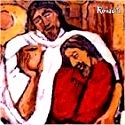
11.19.20 (Kislev 3, 5781) Shalom chaverim.... Whatever else "heaven" may mean -- whatever pleasures or rewards it may forebode in my hope -- for me it is nothing apart from the presence of the Lord, and not just God's presence in some abstract sense, but his presence in relationship to my core - his look upon me, the meeting of our eyes - and my comfort and rapturous delight in the assurance of his love and acceptance of me... And whatever else "hell" may mean, whatever pains or losses it may portend, for me it is being devoid of any sense of welcome or place for my core before God, finding no solace that I am loved and accepted, cast into outer darkness of lost hope and despair...
Moreover, whatever else "repentance" may mean -- whatever changes for the better regarding my own best efforts -- for me it is always turning from the fear and shame of myself - the image that reflects back from the mirror - to seek for and to behold the love and grace of God revealed in the beauty of Yeshua. I do not "repent of" my sins but by turning to God for light and healing and grace... I seek first His kingdom and find therein his righteousness, his provision, and his deliverance from myself. After all, "repenting of my sins" is impossible apart from the miracle of deliverance of my inner condition, for I am not a sinner because I sin, but I sin because I am a sinner, and "repentance" therefore means nothing less than the miracle of new life that is known and beloved by God by virtue of his own mercy and compassion for me.
And whatever else "mortification" of sin may mean -- whatever self-denial or escape from the fires of sore temptation -- it is the blessing of the work of God that buries my old nature and yet manifests the heart and life of Yeshua within the vessel of my present mortal coil. We are already-not-yet creations; we have died to sin and yet fight the good fight of faith to put its presence to death. Yes we hate our sin and must learn to yield ourselves to God's love, but in the end God is the one who heals us and makes us whole. We are not defined by "indwelling sin" inherited by Adam any longer but grow into being a "new self" defined by the indwelling of Yeshua who loved us and gave himself for. Yeshua heals us from the sickness of "eternal death" by imparting to us "eternal life." We are healed in relationship to his love.
Hebrew Lesson:
Psalm 73:25 Hebrew reading (click):
Not of this World...

11.19.20 (Kislev 3, 5781) Life in this evil world can be suffocating at times. And though we may not be under the oppression of a cruel Pharaoh, we are affected by the "princes of this age" who spurn the message of the Messiah's redemption and love, and we are still subjected to bondage imposed by taskmasters who defy the LORD and who seek to enslave us by means of lies, propaganda, "mandates," and threats of violence... The devil is still at work in the hearts and minds of many of his "little Pharaohs" that serve the world system. Nevertheless "there is no fear in love" (אין פַּחַד בָּאַהֲבָה), especially since we know that ein od milvado -- there is no real power apart from the LORD (i.e., He is the only true Power in the universe). Indeed, Yeshua is elyon lemalkhei-aretz (עֶלְיוֹן לְמַלְכֵי־אָרֶץ) - the "Ruler of the princes of the earth" (Rev. 1:5) - and that means that they will answer to Him (Psalm 2). If you belong to the Messiah you are not part of this world and its matrix of deception but instead serve the King of Kings (Col. 1:13; Acts 26:18; 1 Pet. 2:9). Therefore set your thoughts on things above, not on things of this world (Col. 3:2). In the end all things born of the lie will be exposed and forever put away from us (Eccl. 12:14). The great Day draws near. "For though the vision awaits its appointed time; it hastens to the end -- it will not lie. If it seems slow, wait for it; it will surely come; it will not delay" (Hab. 2:3).
Hebrew Lesson:
Zephaniah 1:14a Hebrew reading (click):
The Revelation of God...
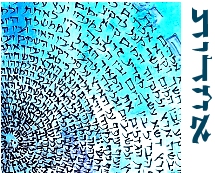
11.18.20 (Kislev 2, 5781) "Draw near to me, hear this: from the beginning I have not spoken in secret, from the time anything came to be there I AM, and now the Lord GOD has sent me, and his Spirit" (Isa. 48:16). Note in this verse the strong intimation of the transpersonal unity (echdut) nature of ha'shilush ha'kodosh, or the ineffable Godhead.... Of course the Torah clearly affirms that "God is one" (יְהוָה אֶחָד), though note that the word "one" (i.e., echad: אֶחָד) means something more than mere numerical identity (i.e., yachid: יָחִיד) but instead unity in plurality, a "transcendental" oneness that points to the unfathomable mystery of the Name YHVH and the tri-unity of the Godhead (אֵין סוֹף). Note further that the Shema is composed of three parts yet is one affirmation, and the great birkat Kohanim, or the "priestly blessing," is composed of three stanzas that use the Name YHVH three times. The Tabernacle, or Mishkan, was composed of three separate sections, with the inmost chamber holding the sacred "three-in-one" box called the Ark of the Covenant... Space is defined in terms of three dimensions, as is time (i.e., past, present, future). God has not spoken in secret, friends. "Who has ascended to heaven and come down? Who has gathered the wind in his fists? Who has wrapped up the waters in a garment? Who has established all the ends of the earth? What is his name, and what is his son's name? Surely you know!" (Prov. 30:4).
קִרְבוּ אֵלַי שִׁמְעוּ־זאת
לא מֵראשׁ בַּסֵּתֶר דִּבַּרְתִּי
מֵעֵת הֱיוֹתָהּ שָׁם אָנִי
וְעַתָּה אֲדנָי יְהוִה שְׁלָחַנִי וְרוּחוֹ
kee-re-voo · ei-lai · sheem-oo - zoht
lo · mei-rosh · ba-se'-ter · dee-bar'-tee
mei-eit · he-yo-tah · sham · a'-nee
ve-a-tah · Adonai · E-lo-heem · she-la-cha'-nee · ve-roo-choh

"Draw near to me, hear this:
from the beginning I have not spoken in secret,
from the time anything came to be there I AM,
and now the Lord GOD has sent me, and his Spirit."
(Isa. 48:16)
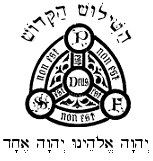
Both the Torah of Moses and the New Testament attest that Yeshua is Elohim (אֱלהִים) -- the sole Creator of the cosmos: בְּרֵאשִׁית הָיָה הַדָּבָר / "in the beginning was the Word" (John 1:1,14). The Divine Word and Voice cannot be separated from God any more than the Spirit of God can be separated. Yeshua is the Source of all life in the universe: כָּל־הַמַּעֲשִׂים נִהְיוּ עַל־יָדוֹ / "All things were made by Him (John 1:3). The "Word made flesh" is the "image of the invisible God" and the "radiance of the glory of God and the exact imprint (χαρακτήρ, 'character') of his nature" (Col. 1:15). All of creation is being constantly upheld by the word of His power (Heb. 1:3): "All things were created by Him (i.e., Yeshua), and for Him" and in Him all things consist (συνεστηκεν, lit. "stick together") (Col. 1:16-17). As our Creator and Master of the Universe, Yeshua is both our King and our Judge, and therefore our lives center upon him...
Hebrew Lesson:
Isaiah 6:3b Hebrew reading (click):
Finding Life in God...
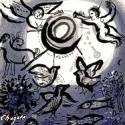
11.18.20 (Kislev 2, 5781) The name of the Lord is YHVH (יהוה), which comes from a root word meaning existence (i.e., hayah: היה, to be). It is this name that gives existence to creation, as it says, "in him all things hold together" (τὰ πάντα ἐν αὐτῷ συνέστηκεν; Col. 1:17) and by his power "all things are carried" (φέρων τε τὰ πάντα; Heb. 1:3).
In God we "live and move and have our being" (Acts 17:28) and "from him and through him and to him are all things" (Rom. 11:36). Some people think of "eternal life" as unending life or immortality of the soul, but eternal life (i.e., chayei olam: חַיֵּי עוֹלָם) transcends the idea of time and is centered in relation to the Living God, right now, wherever we are... Therefore Yeshua says to his followers, "Live in me and I will live in you" (John 15:4). We need not fear death, then, because we partake in the overcoming life of God given in Yeshua: there is no ultimate separation from his love.
When we live in Messiah our true life is "concealed" and we pass over from the temporal world of shadows to the world of reality, from fear to comfort, from darkness to light. We "lose our life in order to find it" (Luke 17:33). The walk of faith surrenders all that this life may promise for the sake of finding true life in God.
Hebrew Lesson:
Psalm 139:5 Hebrew reading (click):
The Reward of Faith...

11.18.20 (Kislev 2, 5781) It is written in our Scriptures: "Without faith it is impossible to please God, for whoever would draw near to God must believe that he exists and that he rewards those who seek him" (Heb. 11:6). Note that the word translated "impossible" in this verse (ἀδύνατος) means powerless, incapable, and so on, which implies that faith is the key that opens the door to God's presence. It is not possible to please God, after all, if you do not believe in his Reality and concern for your life. Indeed confidence in God's promises is the foundation of everything; it is the source of your inner life connection and the answer to your prayer for healing. As our LORD Yeshua said: "Take heart; your faith has made you whole" (Matt. 9:22). God rewards those who earnestly seek him. This hearkens to the promise made to our father Abraham: אל־תִּירָא אַבְרָם - "Fear not, Abram," אָנכִי מָגֵן לָךְ – "I am your Shield," שְׂכָרְךָ הַרְבֵּה מְאד - your reward shall be very great" (Gen. 15:1). "For the LORD God is a sun and shield; the LORD bestows favor and honor. No good thing does he withhold from those who walk in trust" (Psalm 84:11). God imparts favor to those who honestly seek Him, as it is written: "and you shall seek me, and find me, when you shall search for me bekhol levavkha - with all your heart" (Jer. 29:13). That is the teshuvah (answer) to God's haunting question regarding your life; you find "all your heart" as you seek God's presence in all your ways (Prov. 3:6). Faith is its own reward since it imparts the blessing of Reality. The Greek word used to translate "those who seek" is a present active participle (ἐκζητοῦσιν) that refers to those who continue to search for God's Presence and truth - even in the midst of the struggle of life. Like the prophet Enoch, this is the way to "walk with God." So do not lose heart or throw away your confidence, dear friend, because it has great reward (Heb. 10:35).
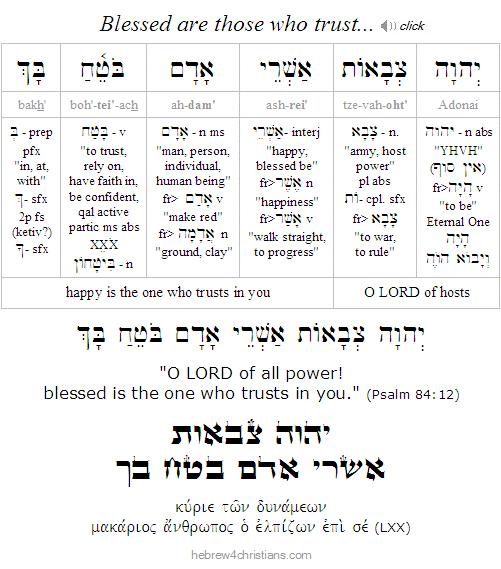 |
Torah of Promise...

11.18.20 (Kislev 2, 5781) Regarding Abraham it is written: "And he believed the LORD, and he counted it to him as righteousness" (Gen. 15:6). Here note the distinction between the promise of God and the commandments of God. The promise of God focuses on God's heart - his desire and goal, his character and passion - but the commandments of God focus on man's heart, in his desire and will to obey (or not). Receiving God's love is not based on imperative and the language of conditional acceptance, but is based on the invitation and promise of love and grace. The "work of faith" (מַעֲשֶׂה הָאֱמוּנָה) is to believe that God accepts you despite your unacceptability, and that you are esteemed righteous for believing the truth of God's heart. Faith justifies the ungodly because faith accepts the promise, just as Abraham was justified because he trusted in the promise of the seed to come. Therefore, as Rabbi Paul taught, we maintain that a person is justified apart from the law (Rom. 3:28), which is to affirm that eternal life is found exclusively in the grace and promises of God. This is the Torah of "faith, hope, and love," and it is a lifelong discipline to know it in the truth. "Blessed are those who hunger and thirst for God's righteousness, for they shall be satisfied" (Matt. 5:6).
Hebrew Lesson:
Genesis 15:6 Hebrew Reading (click):
Rebekah's Surrender...
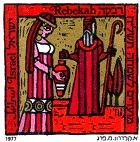
[ The following is related to this week's Torah reading, parashat Toldot... ]
11.18.20 (Kislev 2, 5781) When the twins fought within her womb, Rebekah asked, lamah zeh anochi ("Why do I exist?"), and then the LORD gave her the prophecy: ve'rav ya'avod tza'ir – "the older (or "stronger) shall serve the younger" (see Gen. 25:23). God had chosen one of her two children to become the heir of the covenantal promise, and she therefore may have thought it was her purpose or mission in life to help make that happen... However, Rebekah's elaborate scheme to trick her husband by exchanging the twins for the blessing was doomed from the outset, since God needed to open the blind eyes of Isaac to truly bless Jacob as the family heir (Gen. 28:1-4). Rebekah's mistake was that she thought it was her job to intervene, or to "help God" by resorting to human intervention – somewhat like her mother-in-law Sarah earlier had sought to "help God" by giving Hagar as a surrogate wife to Abraham to produce the heir. It is a difficult thing to let go and to trust that the Lord will take care of everything. Lamah zeh anochi – Why do I exist, except to bear witness to God's providential plan and to trust in God's power to work all things together for good?
Such a plaintive question, lamah zeh anochi – "Why do I exist?" When she was young, Rebekah seemed strong, secure, and courageous. For example, after meeting Eliezer she unhesitatingly declared her willingness to leave all that she knew to go to a strange land and to marry an unknown man -- all for the promise of an unseen good. Nevertheless Rebekah was tested. First, she (like Sarah) was barren and for 20 years ached for a child with Isaac. Second, her pregnancy was difficult and the Lord foretold her that though she would have twins, there would be an ongoing conflict between them that would trouble their lives. Third, after bearing the children, Rebekah's turmoil continued: her husband discounted her faith; her sons pathetically competed for the approval of their father; and she was torn to choose to stand with Jacob even if that jeopardized her relationship with both Esau and Isaac. And later, after the scheme to exchange Jacob for Esau was exposed, her worst fear was realized: she indeed lost both of her sons (Esau because of her betrayal, and Jacob after he fled to Mesopotamia). Struggle after struggle: lamah zeh anochi? Why is this happening to me? Why did I deserve such a fate? Why, but to partake of the truth – to suffer for the sake of the deliverance of God's ultimate blessing for the world. Like Rebekah, we have an important part to play, though assuredly we will be tested and experience challenges along the way. Lameh zeh anochi? To learn to trust God for all that happens in life...
Honesty and Deliverance...

11.17.20 (Kislev 1, 5781) "Those who are well have no need of a physician, but those who are sick. I have not come to call the righteous but sinners to repentance" (Luke 5:31-32). Every one of us has a "dark side" or a "shadow self" that has destructive and selfish urges. We try to conceal this truth from others (and even ourselves) but such denial doesn't change the reality within our hearts (Matt. 5:19; Jer. 17:9; Eccl. 9:3). Indeed, when we pretend to be something we are not we are more likely to be overwhelmed by dark forces hidden within us. Paradoxically we most vulnerable when we think we are well, that is, when we deny our sickness our heart and minimize our need for deliverance.
The way of healing is to "own" or confess the truth of our inner condition and to acknowledge the dark passions that sometimes overmaster our best intentions. We must give ourselves permission to allow the hurt, angry, and fearful voices to be heard and sanctioned within us - and then to bring these dark and hidden aspects of our selves before God for healing. The failure to do so will split the soul and cause the hidden aspects of the self to seek "revenge" upon the "parent self" that censors their message. The struggle within our hearts is real and we should attend to it seriously. Denying evil by pretending that we are okay, or by blaming others, blinds us to the truth of our ongoing need for deliverance. May God help each of us to be honest with ourselves and to confess our great need before our Heavenly Father.
Why do we have such difficulty being genuinely honest with ourselves? Despite the fact that we may profess that we are "sinners saved by grace," we often make excuses for our failures, rationalizing that we are not "that bad," and therefore we postpone genuine teshuvah (repentance) and trifle with our spiritual lives. We do this because we feel an almost irresistible need to justify ourselves, to "save face" by pretending that we are not "incurably sick," or by attempting to find something about us that makes feel valuable and worthy. As H.L. Mencken once wittingly noted, "the 'truth' that survives is simply the lie that is pleasantest to believe."
The LORD wants us to be truthful in the "inward being" (Psalm 51:6), though that truth will cost us something, namely whatever worldly gains we might find through self-deception... Opening our hearts to divine examination eventually means colliding with the world of men and their conspiracies, since the godly man no longer abides their presence (Psalm 1:1-2). The Apostle Paul said there was an exclusive disjunction between seeking the approval of men and of the approval of God: "Do I seek to please men? for if I yet pleased men, I should not be the servant of the Messiah (Gal. 1:10). Likewise we are told not to deceive ourselves (lit., "reason around" the truth, from παραλογίζομαι, from παρά, "around, beside" and λογίζομαι, "to reason") by merely hearing the truth of Scripture and not living it (James 1:22). God is not interested in "lip service" any more than he desires heartless sacrifice (Isa. 29:13; Hos. 6:6; Matt. 15:9). "Let your love be genuine (ἀνυπόκριτος, without a "mask" put on), abhor what is evil; cling to what is good (Rom. 12:9). God abhors those who pretend to know Him but who are really spiritual impostors (Matt. 7:21-23; 25:11-12; Luke 6:46).
Tragically (and paradoxically) many people can talk themselves into believing something without really believing it, and that is perhaps the most dangerous thing of all (Matt. 7:22-23). On the other hand, some people can talk themselves into believing (or accepting) something that they know is untrue (or morally wrong), and that self-deception leads to inner fragmentation, chaos, and dissolution of character. A "double-minded man is unstable in all his ways" (James 1:8). The word translated "double-minded" is dipsuchos (δίψυχος), a word formed from δίς, "twice" and ψυχή, "soul." The word describes the spiritual condition of having "two souls" that both want different things at once -- a state of inner contradiction and ambivalence.
Hebrew Lesson:
Psalm 51:6 Hebrew Reading (click):
Thank the LORD our God that there is real healing for our inner dividedness, ambivalence, and double-mindedness, but that healing demands rigorous honesty. As Kierkegaard rightly observed: "No person is saved except by grace; but there is one sin that makes grace impossible, and that is dishonesty; and there is one thing God must forever and unconditionally require, and that is honesty." Therefore we are instructed to confess our faults one to another, and pray for one another, that we may be healed (James 5:16). May the LORD our God help each of us to be wholehearted in our devotion to Him. Amen.
Personal Update Podcast:
Shalom chaverim. I just uploaded a brief update on how things are going for us over here, so take a listen if you are interested. This is not a professional podcast, just a general talk, though I hope you might find it interesting:
Blessed Hunger and Thirst...

11.17.20 (Kislev 1, 5781) Our Lord said: "Blessed are those who hunger and thirst for righteousness..." (Matt. 5:6). Yes, blessed are those who suffer such desperate need, who know inner emptiness, who are not made numb to the ache, and who cry from the heart for deliverance. Blessed are those who are in dread over themselves, who fall as one dead before the Divine Presence, who know they are undone, ruined, and dying for life... The great danger, spiritually speaking, is to become complacent, untouched by poverty of heart, to be lulled asleep, lost within a dream, made comatose, living-yet-dead. The gift of faith first reveals our own lostness and then imparts courage to live with ourselves despite ourselves as we seek God's healing and life... Let us press on, dear friends.
Hebrew Lesson:
Psalm 42:2a Hebrew Reading (click):
Isaac's Troubled Family...

[ The following is related to this week's Torah reading, parashat Toldot... ]
11.17.20 (Kislev 1, 5781) The sages talk about the "voice of Jacob" (קוֹל יַעֲקב) and the "hands of Esau" (יְדֵי עֵשָׂו; see Gen. 27:22). The twins were counterparts of one another, though each needed the qualities of the other to be complete. Esau needed to learn the ways of Jacob - to love Torah, to respect the call of the family to be God's agents in the world, to value the things of heaven, and so on, whereas Jacob needed to learn the ways of Esau - to be a man of action, to work with his hands, to deal with the rough-and-tumble world at large. After Jacob fled to Haran to escape the clutches of his aggrieved brother, he learned to be a shepherd, a husband, and a father. In this way Jacob also learned the value of the blessing given to Esau, although this too was discovered needlessly late in his life.
It is quite clear that the families of the patriarchs had serious struggles and were often quite "dysfunctional." If we idealize these people, however, we tend to forget their humanity, and they may appear disconnected from us - on a much higher spiritual level. The story of Isaac's troubled family is ultimately one of hope for us all. Isaac was deeply wounded but ultimately found healing, just as his son Jacob later wrestled through his family issues to be renamed "Israel." Take heart, chaverim: God can use us for His kingdom purposes despite whatever wounds and troubles might be in our family backgrounds. The Spirit speaks: "I AM the LORD your healer" (אֲנִי יְהוָה רפְאֶךָ).
Note: For more on this topic see, "Isaac's Troubled Family: Further thoughts on Toldot."
Letting go of Wrath...

11.17.20 (Kislev 1, 5781) We must humble ourselves and renounce anger, for the "wrath of man does not work the righteousness of God" (James 1:20). Therefore "let go of anger and forsake outrage, for indignation leads to evil within the heart, and evildoers will be cut off" (Psalm 37:8-9). After all, before the eyes of heaven, who are we to take offense at others? Is not all our self-justified outrage a symptom of pride and arrogance? Despite all our sins and the times we angered the LORD we still ask, "Bless us, our Father; let your light shine upon us with favor..." And yet when we get slightly upset at a friend we restrain from showing him a shining face, or worse, harden our heart? Know the spiritual principle: As we are to others, so we are to ourselves: middah keneged middah ("like for like"); as we judge others, so we put ourselves before the bar of divine judgment, measure for measure (Matt. 7:1-2). Forgiveness means asking of ourselves what we are asking of God, and the same is true of love. When Yeshua taught us to "forgive us as we forgive," He taught that our forgiveness (of others) is a measure of our own understanding of the forgiveness (of God). Conversely, demanding perfection from others means appealing to God to judge of our lives... Friends, we should focus on the Eternal; we should believe the blessed promise of God; we should anticipate the great Coming Day of ultimate healing - and then our hearts may be quieted. Remember that nothing happens on its own; everything comes from above, and this too will keep you from outrage and bitterness...
Blessing of Confession...

11.17.20 (Kislev 1, 5781) "If we confess our sins, he is faithful and just to forgive us our sins and to cleanse us from all unrighteousness" (1 John 1:9). Not just this or that particular sin, mind you, but the whole constellation of attitudes, assumptions, and wayward thinking that brought us into exile in the first place. The word confession (ὁμολογία) means bringing yourself naked before the Divine Light to agree with the truth about who you are. Indeed, the verb homologeo (ὁμολογέω) means "saying the same thing" - from ὁμός (same) and λόγος (word). In biblical Hebrew teshuvah (תְשׁוּבָה) means turning back to God by turning away from what makes you lost in unreality and painful exile. God's love for us is the question, and our teshuvah – our turning of the heart toward Him – is the answer. Teshuvah is one of the great gifts God gives each of us – the ability to turn back to Him and seek healing for our brokenness.
Hebrew Lesson:
Proverbs 28:13 Hebrew Reading (click):
Being who you are...

11.17.20 (Kislev 1, 5781) Some of us seem far more concerned with how others see than how God sees us... We strive to manage a public image crafted for others but lose the substance of what is real. Trying to control how we are seen by others is exhausting, however, since it implies that we must find our value in their (conditional) approval rather than from a deeper source. The emotional need for approval is a form of cruel bondage: We take ourselves too seriously, we deny who we really are, and we believe we are never good enough. Over time we become anxious and easily offended people... "Am I now trying to gain the approval of people, or of God?" (Gal. 1:10).
For every reaction there is a counter reaction. As the Kotzker Rebbe wisely said, "If I am I because I am I, and you are you because you are you, then I am I and you are you; but if I am I because you are you and you are you because I am I, then I am not I and you are not you." The Kotzer's saying reminds me of a story I once heard. A man went to a rabbi and said, "I know I am a fool, rabbi, but I don't know what to do about it. Can you help me? The rabbi replied in a complimentary way, "Ah my son, if you know you're a fool, then surely you are no fool!" "Then why does everybody say I am fool?" complained the man. The rabbi regarded him thoughtfully for a moment and then said, "If you don't understand that you are a fool, but only listen to what other people say, then you are surely a fool!"
As Hillel had said, "If I am not for myself then who will be for me? But if I am only for myself, what am I? And if not now, when?" (Avot 1:14). Hillel points out here that the language of "I am" (אָנִי) and "me" (לִי) reveals that we have a relationship with ourselves that must be sanctified and ordered before God. As Soren Kierkegaard once cryptically wrote: "The self is a relation which relates itself to its own self, or it is that in the relation that the relation relates itself to its own self; the self is not the relation but that the relation relates itself to its own self" (Kierkegaard: The Sickness unto Death). An authentic self must relate itself to God as the Ground of existence, otherwise irremediable despair will result, that is, a lethal sickness of soul... The remedy for anxious confusion of heart is to turn to God and to find your value in God's love and blessing. As we come to believe that we are accepted and loved despite our many imperfections, inadequacies, and character defects, we find courage to accept ourselves, to "let go" and relax. As Yeshua said, "whoever does not receive the kingdom of God like a child shall not enter it" (Luke 18:17).
"Real isn't how you are made," said the Skin Horse. "It's a thing that happens to you. When a child loves you for a long, long time, not just to play with but REALLY loves you, then you become Real. It doesn't happen all at once. You become. It takes a long time.... Generally, by the time you are Real, most of your hair has been loved off, and your eyes drop out and you get loose in the joints and very shabby. But these things don't matter at all, because once you are Real you can't be ugly, except to people who don't understand." (Margary Williams, The Velveteen Rabbit)
The Oath of Blessing...
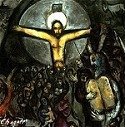
[ The following is related to this week's Torah reading, parashat Toldot... ]
11.16.20 (Cheshvan 29, 5781) In our Torah portion this week (Toldot) we learn that the great oath of blessing that God gave to Abraham was extended (exclusively) to his beloved son Isaac (Gen 26:3-4; Rom. 9:7), and not to Ishmael. Recall that it was only after the Akedah (the sacrifice of Isaac) that the LORD God swore the oath (שְׁבוּעָה) that through Abraham would all the families of the earth be blessed: "By myself I have sworn, declares the LORD, because you have done this and have not withheld your son, your only son (ben yachid), I will surely bless you... and in your offspring shall all the nations of the earth be blessed, because you have obeyed my voice" (Gen. 22:16-18; cp. Gal. 3:9,16). The phrase, "by myself have I sworn" (בִּי נִשְׁבַּעְתִּי) is the most solemn oath God could make and is regarded as an inviolable vow (Heb. 6:13-18). The Targum Yonatan reads, "By my Word have I sworn, says the Lord, because you have done this thing, and have not spared your only son... that all the peoples of the earth shall be blessed through the righteousness of your son." It is nothing short of astounding to realize that the very existence of Israel and the Jewish people - and therefore the advent of the Messiah himself - derives from the Abraham's willingness to sacrifice his "only begotten son," an act of faith that constituted the revelation of "deeper Torah" later enshrined in the laws of sacrifice given at Sinai.
That is why the key idea of the Torah centers on the idea of atoning sacrifice, and in particular, the continual sacrifice of the lamb. Indeed atonement is the central theme of the central book of Torah, i.e., Leviticus, where we are called to draw near to God through sacrificial rites, the foremost being the ongoing offering (i.e., korban tamid: קָרְבַּן תָּמִיד) of a defect-free male lamb, together with unleavened bread and wine. The LORD called this "My offering, My bread" (Num. 28:1-8). In other words, the very center of the Torah is the altar that constantly prefigured the Lamb of God who would be offered up to secure our eternal redemption (John 1:29; Heb. 9:11-12). Yeshua is our "lamb offered in the morning and in the evening," and His sacrificial life embodies God's passion for you to receive his love.
"He is the LORD our God; his judgments are in all the earth. He remembers his covenant forever, the word that he commanded, for a thousand generations, the covenant that he made with Abraham, his sworn promise to Isaac, which he confirmed to Jacob as a statute, to Israel as an everlasting covenant." (Psalm 105:7-10)
The "Gospel of Moses" revealed in the Akedah foretells the cross of our Savior. For more on this subject, see "Israel and the Akedah" here.
Hebrew Lesson:
Psalm 105:1 Hebrew Reading (click):
The Month of Dreams...

11.16.20 (Cheshvan 29, 5781) This evening (after sundown) marks "Rosh Chodesh Kislev" (which occurs for two days this year). On the Biblical calendar the month of Kislev (כִּסְלֵו) is the ninth of the year (counting from Nisan), and it is also one of the "darkest," with the days progressively getting shorter and the nights getting progressively longer. Kislev is perhaps best known for the eight day holiday of Chanukah (חג החנוכה) which begins on the 25th of the month (Thurs. Dec. 10th) and runs through the third day of the following month (of Tevet). Since there is always a new moon during the season of Chanukah, it is no wonder that this holiday represents an appropriate time to kindle the lights of faith, and especially to recall the advent of Yeshua the Messiah, the Light of the World (אוֹר הָעוֹלָם).
יְהִי רָצוֹן מִלְּפָנֵיךָ יהוה אֱלהֵינוּ
וֵאלהֵי אֲבוֹתֵינוּ שֶׁתְּחַדֵּשׁ עָלֵינוּ חדֶשׁ טוֹב
בַּאֲדנֵינוּ יֵשׁוּעַ הַמָּשִׁיחַ אָמֵן
ye·hee ra·tzon meel·fa·ney'·kha Adonai E·lo·hey'·noo
vei·lo·hei a·vo·tey'·noo she·te·cha·deish a·ley'·noo choh'·desh tov
ba'a·do·ney'·noo Ye·shoo'·a ha·ma·shee'·ach a·mein

"May it be Your will, LORD our God and God of our fathers,
that you renew for us a good month
in our Lord Yeshua the Messiah. Amen."

Download Blessing Card
Chodesh Kislev is sometimes called the "month of dreams" because the weekly Torah portions for this month contain more dreams than any other in the Scriptures. No less than nine dreams (of the ten in the Torah) appear in the four portions of Vayetzei, Vayishlach, Vayeshev, and Miketz - all of which are usually read during the month of Kislev. In the Torah, the primary figure connected with dreams is Jacob's son Joseph, who was nicknamed by his brothers as "that dreamer" and who was later named "Decipherer of Secrets" (Tzofnat Paneach) by Pharaoh (Gen. 41:45). Joseph was able to authentically mediate the spiritual and the physical realms through the Spirit of God within him (Gen. 41:38). Prophetically Joseph represents Yeshua the "disguised Egyptian" who likewise was rejected and hated by his brothers but who later became their savior (for more see "Mashiach ben Yosef").
For more on this subject, see "Chodesh Kislev."
Parashat Toldot - תולדת
 |
11.15.20 (Cheshvan 28, 5781) Last week's Torah portion (i.e., Chayei Sarah) told how Abraham's servant Eliezer (אֱלִיעֶזֶר) sought a bride for Isaac from among Abraham's relatives living in Mesopotamia. In response to his prayer to the LORD, Eliezer was shown that Abraham's nephew's daughter Rebekah (i.e., Rivkah bat-Betu'el: רִבְקָה בַּת־בְּתוּאֵל) was chosen to be one of the four matriarchs of Israel (i.e., arba imahot l'Yisrael: אַרְבַּע אִמָּהוֹת לְיִשְׂרָאֵל).
This week's reading (i.e., parashat Toldot) continues the story by revealing that Isaac and Rebekah had been married for twenty years but were still without an heir to carry on the family line. Finally their prayers were answered and Rebekah conceived, though not without complications. When she inquired of the LORD about her travail, God told her that she was carrying twins that would be heads of two rival nations, but the younger child would in fact become the promised heir of the chosen people. When the day arrived for Rebekah to give birth, the first child came out "red and covered with hair," so they called his name "Esau" (i.e., esav: עֵשָׂו, "hairy"); then his brother came out with his hand grasping Esau's heel (i.e., akev: עָקֵב), so they named him "Jacob" (i.e., ya'akov: יַעֲקב) from the Hebrew verb (i.e., akav: עָקַב), meaning "to take by the heel; to displace; to supplant."
The Torah then says that Esau became a crafty hunter (i.e., ish yodea tzayid: אִישׁ יֹדֵעַ צַיִד), "a man of the field" (אִישׁ שָׂדֶה) while Jacob was "a wholesome man" (i.e., ish tam: אִישׁ תָּם) who "dwelt in tents" (יֹשֵׁב אֹהָלִים). Isaac favored Esau (וַיֶּאֱהַב יִצְחָק אֶת־עֵשָׂו); because he had a taste for game (כִּי־צַיִד בְּפִיו), but Rebekah favored Jacob (וְרִבְקָה אֹהֶבֶת אֶת־יַעֲקֹב) because she believed the promise of the LORD...
The portion then gives us a look at the spiritual life of the two boys. According to tradition, on the day of the funeral of their grandfather Abraham, Jacob was cooking lentil soup for Isaac, the traditional mourner's meal. Esau rushed in from a hunting expedition, exhausted and hungry. He then begged Jacob to give him some of "that red stuff" (i.e, ha'dom hazeh), but Jacob answered that he would give him some only if he would sell him his birthright. Esau agreed to the terms and discounted his birthright as being worth only a "bowl of beans" (on account of this incident, Esau was given the nickname of "Red" (i.e., אֱדוֹם "Edom"). In this manner the Torah describes how Esau "despised the birthright" (Gen. 25:34).
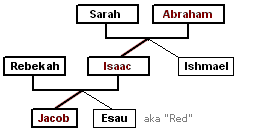 |
Years later, when Isaac was old and blind, Jacob (with his mother Rebekah's help) tricked Isaac into conferring the blessing of the firstborn (בִּרְכַּת בְּכוֹר) upon him, thereby making Jacob the heir of the family, and not Esau. When the ruse was discovered, however, Esau sought to kill his brother, and Jacob was forced to flee his home, never to see his mother again...
Hebrew Lesson:
Gen. 25:19 Hebrew Reading (click):
A Bride for the Promised Child...
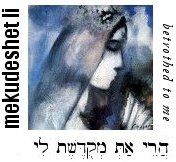
[ The following entry is related to this week's Torah reading, parashat Chayei Sarah... ]
11.15.20 (Cheshvan 28, 5781) Though he is not explicitly named in the account, the "elder servant" commissioned to find a bride for Isaac was undoubtedly Eliezer of Damascus (see Gen. 15:2). Eliezer (אֱלִיעֶזֶר), whose name means "my God will help," is regarded as a consummate example of a godly servant, a picture of the Holy Spirit (רוּחַ הַקּדֶשׁ) sent on a mission to find a bride for the Sacrificed Seed of Abraham (i.e., the Messiah Yeshua). Eliezer dutifully departs on his mission and waits by the "well of water," interceding on behalf of righteousness... He asks for a witness from heaven: "Let the young woman to whom I shall say, 'Please let down your jar that I may drink,' and who shall say, 'Drink, and I will water your camels' -- let her be the one whom you have appointed" (Gen. 24:13-14). Rebekah's response of kindness and generosity (i.e., chesed: חֶסֶד) to a tired wayfarer demonstrated God's choice. Note that the test concerned the inward character of the woman, not her status or beauty or other worldly factors. And since a single camel needs about 25 gallons of water and requires 10 minutes to drink, watering ten camels would require 250 gallons and at least a couple hours of work running back and forth to the well - no small task for anyone! Rebekah possessed Abraham's qualities of gracious hospitality and diligence...
Eliezer's prayer to find a bride for Isaac (the very first recorded prayer of the Torah) did not appeal for a great miracle such as splitting the sea, but instead relied on the providential and "hidden hand" of God that governs the affairs of everyday life (i.e., hashgachah pratit: הַשְׁגָּחָה פְּרָטִית). His prayer at the well relied on God to lead him to a woman who, like his master Abraham, would extend compassion to a person in need (חֶסֶד). The Torah therefore reveals that far from being a coincidence or chance encounter, then, "before he had finished speaking, הִנֵּה רִבְקָה - behold Rebekah..." (Gen. 24:15). "Before they call I will answer; while they are still speaking I will hear" (Isa. 65:24).
Consider for a moment the great character of the woman God chose to be the bride for the Abraham's promised heir... Rebekah was willing to leave her family - all that she knew - based on an "otherworldly" promise. Her response to the invitation was simply: אֵלֵךְ - "I will go" (Gen. 24:58). Her courageous willingness was likewise a characteristic of Abraham who was willing to leave his homeland in search of the greater things of God. Like Abraham, Rebekah chose to be ger ve'toshav (גֵּר־וְתוֹשָׁב) - a "stranger and a sojourner" - who left everything behind in order to become part of God's chosen family...
Note again that the Divine Presence is revealed in this story as an effect of both Eliezer and Rebekah's inner life and character... God was present in the story through the concrete actions of people that discerned his touch (more here).
 |
The Time Draws Near...
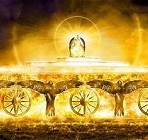
11.15.20 (Cheshvan 28, 5781) The signs are omnipresent now: wars, famines, viral diseases, earthquakes; the systematic persecution of Christians all over the world; unprecedented worldwide unrest and terror; the apostasy of so many and the general heartlessness of our age; the relentless propaganda and disinformation served up by mass media; the deconstruction of the United States economy and the rise of digital currency; the new total surveillance culture; the rise of social media censorship and the loss of civil liberties; the advent of bio-weapons as a means for implementing bio-chemical fascist control of all human interactions; the planned global power shift with United States marginalized; the dialectic between social unrest and the coming global police state; buying and selling controls based on compliance to a "politically correct" ideologies, the recent peace accords in Israel combined with increased threats from Iran, Syria, and Russia that set the stage for "War of the North" that will signal the rise of the antichrist…. We are indeed living through prophetically weighty times, and I believe the hour is drawing near for the return of Yeshua according to his promise.
The release of the covid virus apparently from the Wuhan Institute of Virology has imploded the world's economies and constricted personal freedoms for billions of people on the earth today. The search for a "cure" is connected with a larger, global vision to implement a worldwide forced vaccination program with digital tracking nanotechnology that will biometrically track all people and eliminate political freedoms. Again, these are unprecedented times, and people around the world are desperately seeking remedy for the impending social unrest and inevitable economic chaos. The stage is being set for the "end of days" and the advent of the "man of sin," otherwise known as the Antichrist, to pretend to be the "savior" of the world...
We must press on without fear, trusting that our faithful LORD will equip and empower us for "such a time as this." To his followers the Lord gives more grace in hours of testing. We must be brave, strongly equipped for battle, and full of conviction that the message of the gospel is the only hope for this moribund and decadent world. We must be on guard lest we fear, for fear is the greatest tool of the enemy of our souls, and therefore we must resist him steadfast and full of divine assurance. "The Lord is faithful: He will establish you and guard you against the evil one" (2 Thess. 3:3). The Spirit says, "Fear not, for I am with you always." "He will sustain you to the end, guiltless in the Day of our Yeshua the Messiah" (1 Cor. 1:8). He who calls you is forever faithful; He will surely do it (1 Thess. 5:24).
Hebrew Lesson:
Isa. 41:10 Hebrew Reading (click):
Keep the Flame Burning...
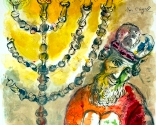
11.13.20 (Cheshvan 26, 5781) Keep the flame within your heart burning, friend... A sage once told a person struggling with his faith: "It is written that all creation was brought into being because of people like you. God saw there would be people who would cling to our holy faith, suffering greatly because confusion and doubt would plague them. God perceived that such would overcome these doubts and troubles of heart and remain strong in their belief. It was because of this that God brought forth all creation." Indeed, it was because of this that Yeshua our LORD suffered and died for you... Amen. Therefore never yield to despair, since that leads to further darkness and fear. Press on and keep fighting the "good fight" of faith (1 Tim. 6:12). Remember that you infinitely matter to heaven; your life has great value; you are significant and you are truly loved by our Heavenly Father. There is a "future and a hope" for you; there is "a white stone, and on that stone will be written a new name that no one can understand except the one who receives it" (Rev. 2:17). May "the trial of your faith, being much more precious than of gold that perishes, though it be tested with fire, be found to result in praise and glory and honor at the revelation to come" (1 Pet. 1:7).
"I am sure of this, that he who began a good work in you will bring it to completion (ἐπιτελέω) at the Day of Yeshua the Messiah" (Phil 1:6). The LORD is able to guard you (φυλάξαι) from stumbling and to present you blameless before the presence of His glory with great joy (Jude 1:24). "The LORD upholds all who are falling and raises up all who are bowed down" (Psalm 145:14). "He will sustain you to the end, guiltless in the Day of our Yeshua the Messiah" (1 Cor. 1:8). He who calls you is forever faithful; He will surely do it (1 Thess. 5:24). Yea, "the Lord is faithful (נֶאֱמָן הוּא): He will establish you and guard you against the evil one" (2 Thess. 3:3). The Spirit says, "Fear not, for I AM with you always."
Hebrew Lesson:
Psalm 145:14 Hebrew Reading (click):
Learning from our Struggles...

11.13.20 (Cheshvan 26, 5781) "You do not know what spirit you are of..." (Luke 9:55). Yeshua's words imply that each of us has the responsibility to know ourselves (γνῶθι σεαυτόν), and to learn to endure (and overcome) the natural motives and focus of our hearts. We discover the truth of our spiritual condition in the midst of our daily frustrations, as we experience conflict, opposition, and the inner groan that arises from pressure and disappointment. Spiritual growth means learning to transcend our negative reactions, to stop cursing our conflicts, and to awaken to the blessings that surround and pervade our way. God's grace enables us to open our eyes so that we may "choose life and live" (Deut. 30:19). Our daily struggle with sin reveals the contradiction between the ideals of our faith and the spontaneous reactions of our heart.... We live in between the "is" and the "ought," the real and the ideal (though often we deny one or the other). The impulse to despair, to be angry, to complain and curse our experience can be transformed into an opportunity to pray, to ask God for help, and to refocus on what is real. This is the "hidden blessing" (ברכת סוד) of our troubles. When we learn to surrender to God's Presence, we can breathe in his peace and love, despite the grief we encounter over ourselves and others. When we come to the light, and do not deny the truth about our condition, we can honestly ask the LORD for healing (Heb. 4:16). When we seek for the good - and even bless the struggle - we express our trust that God will use our sorrow to help us grow and to bring beauty from our ashes (2 Cor. 7:10). Hashivenu! "Turn us back to you, O LORD, and we shall be turned..."
הֲשִׁיבֵנוּ יְהוָה אֵלֶיךָ וְנָשׁוּבָה
חַדֵּשׁ יָמֵינוּ כְּקֶדֶם
ha·shee·vei·noo · Adonai · e·ley·kha · ve·na·shoo·vah
cha·desh · ya·mey·noo · ke·ke·dem

"Turn us back to you, O LORD, and we shall be turned;
renew our days as of old."
(Lam. 5:21)
Hebrew Study Card

Hebrew Lesson:
Lamentations 5:21 Hebrew reading Lesson (click):
Again, our daily struggle with sin reveals the contradiction between the ideals of our faith and the spontaneous reactions of our heart. If we are able to find the courage, our failures and brokenness may be used by God to distill the intentions of the heart by helping us to be more honest with ourselves. We begin to realize that we are more vulnerable than at first we thought; that our faith is not as strong as we imagined, and that our motives are often mixed and unconscious. Illusions are striped away; idols crumble; deeper levels of selfishness are uncovered; the gap between our words and our deeds is exposed... It is one thing, after all, to intellectually think about faith or to idealize spirituality, but it is quite another to walk out faith in darkness. Yet it is only there, in the rawness of heart, that we discover what we really believe and how our faith makes traction with reality...
Hashivenu! May the LORD our God help us walk with Him in truth. Amen....
The Life-Giving Fear...

11.13.20 (Cheshvan 26, 5781) In the Torah we read: "And now, Israel, what does the LORD your God require of you, but to fear the LORD your God..." (Deut. 10:12). Notice that "fear of the LORD," yirat Adonai (יִרְאַת יהוה), comes first and is what is required of you. The sages say that to fear the LORD means that your fear should be like God's fear. But what could God possibly fear, you ask? Only this: that you will turn away from his love and destroy yourself. To fear God means abhorring that which breaks the relationship He desires with you. That is the wound of God's heart, and that is what God "fears."
Of course there is also the fear of going to hell and suffering God's judgment for sin, but that outcome is the result of that which God fears, namely, your rejection of his offer of grace and forgiveness given in Yeshua... Nonetheless, believers should also fear sinning against God since that makes a mockery of his love. Why? Because if God so hates sin that he suffered and died for you to be free from its power, what sort of insult is it to continue sinning without experiencing fear and trembling? Consider again the great cost of your salvation (1 Pet. 1:18-19). Yeshua was shamed as a criminal, cruelly beaten, mercilessly flogged, viciously lacerated, and died of asphyxiation upon a cross to intercede for your life and to present his blood as atonement for your sin. He didn't die like this so you could go on sinning with impunity, but to redeem your life from the verdict of the law and to restore your place as child of God. Willfully sinning shows contempt for the sacrifice of Messiah and outrages the spirit of grace: "Someone who rejected the law of Moses was put to death without mercy on the testimony of two or three witnesses. How much worse punishment, do you think, will be deserved by the one who has trampled underfoot the Son of God, and has profaned the blood of the covenant by which he was sanctified, and has outraged the Spirit of grace? For we know the one who said, "Vengeance is mine, I will repay," and again, "The Lord will judge his people." It is a fearful thing to fall into the hands of the living God" (Heb. 10:28-31).
Hebrew Lesson:
Deut 4:24 Hebrew Reading (click):
Be encouraged. It is written that the fear of the LORD is "the beginning of wisdom (רֵאשִׁית חָכְמָה)," but it also the beginning of the experience of God's love... Without the fear of the LORD, you will walk in darkness and be unable to turn away from evil (Psalm 111:10; Prov. 1:7; 9:10; 10:27; 14:27, 15:33; 16:6); you will find yourself alone, in a place of sadness and vexation, of despair and inner pain. The Spirit of God's love plainly declares that "the fear of the LORD leads to life (יִרְאַת יְהוָה לְחַיִּים, lit. "is for life"), indicating that it is a healing passion:
יִרְאַת יְהוָה לְחַיִּים
וְשָׂבֵעַ יָלִין בַּל־יִפָּקֶד רָע
yeer·at · Adonai · le·cha·yeem
ve·sa·vei·'a · ya·leen · bal-yee·pa·ked · ra

"The fear of the LORD leads to life,
the one who has it will rest satisfied and not be visited with harm."
(Prov. 19:23)

Hebrew Lesson:
Proverbs 19:23 Hebrew Reading (click):
Some people tend to get this backwards, or they may underestimate the seriousness of the issue. The problem is not that people sometimes sin and therefore risk being sent to hell, but rather that people are incorrigible sinners that presently exist in state of hell... Human nature is incurably sick; the wound of our mortality is indeed fatal (Jer. 17:9; Mark 7:21-23). As Yeshua taught, the way out of bondage to sinful human nature is through the miracle of spiritual rebirth (John 3:3-8; 8:44). When we accept God's love we are delivered from the guilt that justly condemns our souls (Col. 1:13). As it is says "Whoever believes in him is not condemned, but whoever does not believe is condemned already, because he has not believed in the name of the only Son of God" (John 3:18). In other words, unless you truly repent by accepting God's love, you risk an eternally loveless existence... It must be remembered that God does not want any one to perish but for all to be in loving relationship with Him (2 Peter 3:9). "God our Savior desires all people to be saved and to come to the knowledge of the truth" (1 Tim. 2:4). However, "hell is a room locked from the inside," and if you steadfastly refuse to be loved, God Himself will respect your decision...
All this resolves to a sober question about your spiritual identity... Do you believe you are a redeemed child of God? Are you spiritually reborn? Do you accept His love and deliverance, or do you make it conditional, based on your performance? This is not about mere ethics, friends - the world is filled with various kinds of ethical philosophy, after all. No, this is a question about ontology - about who you really are; it's a question about what you are trusting, and it centers on the presence of the miracle within your heart.
We are saved by hope (Rom. 8:24). May you fall before the cross in fear of your sins, but may you be raised up by the reality of God's love for your soul... May you then walk in the awe of God's glorious mercy, "to love him, to serve the LORD your God with all your heart and with all your soul." Amen.
Every Soul a Teacher...

11.13.20 (Cheshvan 26, 5781) Every one of us is a teacher of sorts, proclaiming through our personal choices what we believe to be true. False teachers are those whose choices "teach" that there is no God, no eternal life, no meaning to life, and ultimately, no real hope... It cannot be any other way, for we all teach by our choices; we communicate by our assumptions of what we regard is of "ultimate concern." Don't be fooled by the phony intellectuals of our day: so-called "postmodern" philosophy never answered any of the haunting existential questions of life, such as: What is reality? Why is there something rather than nothing? What is the purpose of life? What happens when we die? Who am I? Do moral choices matter? and so on, but instead merely reinterpreted the hunger for meaning to be about power and control... Nonsense! People may evade the great questions of life by pretending they are unknowable, but Scripture attests that all people are created in God's image and are intuitively aware of God's reality and power: "For His invisible attributes, namely, his eternal power and divine nature, have been clearly perceived, ever since the creation of the world, in the things that have been made; so they are without excuse" (Rom. 1:20). We have a sacred duty to honor God's truth and that implies we bear a sacred animosity toward lies and false teaching. "Do not be deceived: associating with false teaching corrupts good character" (1 Cor. 15:33). We abhor sin because it wounds and kills the soul. Think straight; awaken to the holiness of life; turn away from vain thoughts and lies; embrace the truth of God's salvation.
Every day we make decisions regarding good and evil, and therefore every day we are deciding (i.e., proclaiming, teaching, and attesting) our faith to others. The issue is not whether we will teach others, but what we will teach them by the testimony of our lives and the decisions we make regarding our ultimate concerns...
Hebrew Lesson:
Proverbs 1:7 Hebrew Reading (click):
The Vale of Tears...
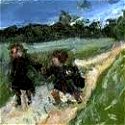
11.13.20 (Cheshvan 26, 5781) The walk of faith refers to trusting in the Presence and love of God for your soul, even though you will suffer and experience various hardships in your life. Yes, we receive comfort from heaven and consolation through the Spirit of God, and yes we are given heavenly wisdom to know the truth that sets us free in Yeshua, however in this life we "see through a glass darkly," which literally means "in a riddle" (ἐν αἰνίγματι). A riddle is an analogy given through some resemblance to the truth, though quite often the correspondences are puzzling and obscure. Hence, "seeing through a glass darkly" means perceiving obscurely or imperfectly, looking "through" something else instead of directly apprehending reality. We see only a reflection of reality, and our knowledge in this life is indirect and imperfect. This is contrasted with the "face to face" (פָּנִים אֶל־פָּנִים) vision and clarity given in the world to come, when our knowledge will be clear and distinct, and the love of God will be fully manifest to us and no longer hidden. Realizing this should make us humble whenever we consider our faith. "Now we know in part, but then shall we know in whole" (1 Cor. 13:12). We often do not have the "answers" for suffering, though "seeing through a glass darkly" means we have the means to trust God despite the present hour.
We must train ourselves to see beyond the realm of appearances, especially regarding matters of the heart. The "outer self" is perishing yet the "inner self" is renewed day by day. Moreover "our momentary affliction is preparing for us an eternal weight of glory beyond all comparison, as we look not to the things that are seen but to the things that are unseen. For the things that are seen are transient, but the things that are unseen are eternal. For we know that if our earthly house, the "tent" we live in, is dismantled, we have a building from God, a house not built by human hands, that is eternal in the heavens" (2 Cor. 4:17-5:1). Amen. Like father Abraham we sojourn in a "land of promise" as "strangers" to this world, looking for a "city that has foundations, whose designer and builder is God" (Heb. 11:9-10). "For here we have no lasting city, but we seek the city that is to come" (Heb. 13:14).
Yeshua is the greatest and most worthy tzaddik of all, yet he terribly suffered throughout his life as the "man of sorrows (אִישׁ מַכְאֹבוֹת) acquainted with grief" (Isa. 53:3). O consider how our beloved Messiah suffered and died while feeling forsaken by his heavenly Father (Matt. 27:46; Psalm 22:1). A modern day faith-healer might have wanted to "save" him from the pain he was undergoing, but that would have been a deal made with the devil (see Matt. 16:21-23). "We walk by faith, not by sight," abiding in the grace of God and believing in his acceptance for us even in the midst of the desert of this world. Do not be fooled by specious appearances. Contrary to those who teach that Yeshua came to give us our "best life now," being healthy or materially prosperous does not indicate spiritual blessing. In the world to come we will be surprised to see people like Lazarus the beggar in the "bosom of Abraham" while others who seemed successful in this world languishing in hell (Luke 16:20-31).
The truth of God can be found, not by means of carnal reasoning, but by special revelation and encounter with the Truth of God. This is sometimes called "argumentum spiritus sancti," or the argument from the Holy Spirit. Kierkegaard wrote in his journals: "In 1 John 5:9 we read: 'If we receive the testimony of men' (this is all the historical proofs and considerations) 'the testimony of God is greater' -- that is, the inward testimony is greater. And then in verse 10: 'He who believes in the son of God has the testimony in himself.' Therefore genuine faith is more than a creed or "doctrine"; it is existence itself, a matter of spirit, wherein new life is expressed in relationship to God through Yeshua the Savior. Shabbat Shalom, chaverim; keep focused on the glory that is to come!
Hebrew Lesson:
Isaiah 53:3a Hebrew Reading (click):
Faith and Resurrection...
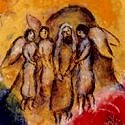
[ The following entry is related to this week's Torah reading, parashat Chayei Sarah... ]
11.13.20 (Cheshvan 26, 5781) More space is given to the negotiation between Abraham and the Hittites for the Cave of Machpelah in Hebron (Gen. 23:3-16) than many other matters in Torah, since it represented Abraham's faith in the resurrection from the dead. Indeed it was the death of Sarah that moved Abraham to "see and greet from afar" the fulfillment of God's promise, despite the appearances of this world (Heb. 11:13). Thus Abraham said to the sons of Chet: "I am a 'stranger and sojourner' (גֵּר־וְתוֹשָׁב) among you; sell me a burial site..." (Gen. 23:4). Abraham foresaw the City of God, the architecture of Zion to come, and by faith "he was looking forward to the city that has foundations, whose designer and builder is God" (Heb. 11:9-10). This the legacy of Abraham as the father of faith (Gal. 3:7). It is significant that after the great Exodus, the two faithful spies sent to scout the land (Joshua and Caleb) first visited the burial place of the patriarchs in Hebron to renew their conviction that the land could be taken (Num. 13:21-22). The heart of faith affirms the promise of God, even in the face of the dust of death itself; it affirms that underlying the surface appearance of life is a deeper reality that is ultimately real and abiding. It "sees what is invisible" (2 Cor. 4:18) and understands (i.e., accepts) that the "present form of this world is passing away" (1 Cor. 7:31). Faith is the assurance of things hoped for, the conviction of things not seen (Heb. 11:1).
"These (i.e., the patriarchs) all died in faith, not having received the things promised, but having seen them and greeted them from afar, and having acknowledged that they were strangers and exiles (גֵּרִים וְתוֹשָׁבִים) on the earth. For people who speak thus make it clear that they are seeking a homeland (i.e., πατρίδα, "land of the Father"). If they had been thinking of that land from which they had gone out, they would have had opportunity to return. But as it is, they desire better, that is, a heavenly land. Therefore God is not ashamed to be called their God, for he has prepared for them a city" (Heb. 11:13-16).
Hebrew Lesson:
Psalm 16:11 Hebrew Reading (click):
Enduring Ourselves...

11.13.20 (Cheshvan 26, 5781) Spirituality is lived now, in this world... "I do not ask that you take them out of the world, but that you keep them from the evil one" (John 17:15). We are "in but not of" the world; we are part yet also not part of it... This is the tension of living in the realm of the "already-not-yet." We are haunted by a sense of incompletion - a yearning for the fulfillment of our salvation, an inner ache that helps focus the heart's affections...
A paradox of the spiritual life is that we must descend to ascend... We enter at the "straight gate" of humility and brokenness. We all sin; we all fall short. First we must accept our own "dark side" -- our own sinful nature -- before we can ever come to know the light... This is the path of confession - acknowledging the truth about who we really are, which is the only way we can learn to "endure ourselves" and eventually let go of our shame. We find ourselves when we give up our defenses and take hold of God's compassion. We all have our sins; now we must find our courage in God's love.
כִּי־פְשָׁעַי אֲנִי אֵדָע
וְחַטָּאתִי נֶגְדִּי תָמִיד
kee'-fe·sha·ai · a·nee · ei·da
ve·chat·ta·tee · neg·dee · ta·meed

"For I know my transgressions,
and my sin is ever before me." (Psalm 51:3)

Hebrew Lesson:
Psalm 51:3 Hebrew Reading (click):
We must learn to "endure ourselves..." We can't deny who we are; we can't pretend to be what we are not. The root of shame is self-rejection. This is the hidden anguish of heart that leads many of us astray. As Henri Nouwen said, "There are two extremes to avoid: being completely absorbed in your pain and being distracted by so many things that you stay far away from the wound you want to heal." We don't come to the cross to destroy ourselves but to find deliverance and life: our brokenness is a means to this greater end. We "take up the cross daily," which means learning to forgive and endure ourselves... As Tillich reminds us: "The courage to be is the courage to accept oneself as accepted in spite of being unacceptable..."
In this age, we are part of a seemingly endless journey of falling down and getting back up once again. It is this struggle, this "good fight of faith," that eventually ennobles the heart and establishes character... In light of this, we must refuse to lose heart when things appear to be going badly, and likewise we must remain vigilant when things seems to be going well. The goal of the process is always to be in heartfelt, genuine, and earnest relationship with the LORD. As Madame Guyon once wrote, "You are born into the world like an illegitimate child who has no idea who his father is. But God comes and draws you out of your old life. He cleanses you and gives you back your innocence."
Religion vs. Spirituality....
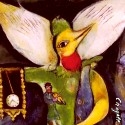
11.12.20 (Cheshvan 25, 5781) Regarding the contrast between "religion" and "spirituality," Carl Jung once wrote: "One of the main functions of formalized religion is to protect people against a direct experience of God." The use of rituals, ceremonial laws, customs, the establishment of a hierarchy of believers (i.e., professional clergy), and so on, devises a layer or buffer to avoid personal encounter with God... As Soren Kierkegaard (1813-1855) once said, "The most pernicious of all evasions is — hidden in the crowd, to want, as it were, to avoid God's inspection of oneself as a single individual, avoid hearing God's voice as a single individual, as Adam once did when his bad conscience fooled him into thinking that he could hide among the trees" (Upbuilding Discourses in Various Spirits). Likewise religious dogma (or theology) can create a belief system that encourages a sense of "us" against "them" that leads to the quintessential prayer fo the hypocrite: "God, I thank you that I am not like other men" (Luke 18:11). Again Kierkegaard insightfully notes that theologizing can serve to excuse people from the duty to live in genuine faith: "All this interpreting and interpreting and scholarly research and new scholarly research that is produced on the solemn and serious principle that it is in order to understand God's Word properly -- look more closely and you will see that it is in order to defend oneself against God's Word. It is only all too easy to understand the requirement contained in God's Word" (For Self-Examination).
 |
Man-made religion establishes fixed practices, often based on rationality, with a goal of attaining a state of perfection of some kind. Rewards and punishments are emphasized to keep the system running. Other religious expressions are considered threatening on some level, at least from the perspective of those who have power within the religious system itself.... Openness, uncertainty, questioning, are generally discouraged, and the role of paradox, wonder, and mystery are set aside for doctrines. All this is dangerous to the way of the Spirit. As Gregory of Nyssa said, "Concepts create idols; only wonder comprehends anything. People kill one another over idols; wonder makes us fall to our knees."
Note: Regarding Jung's statement (i.e., that religion serves to "protect" people against a direct experience of God), a case could be made that true religion does not mediate the ordinary to hide the extraordinary, but on the contrary, it mediates the extraordinary to reveal the ordinary! The truth of God can be found, not by means of carnal reasoning, but by special revelation and encounter with the Truth of God. This is sometimes called "argumentum spiritus sancti," or the argument from the Holy Spirit. Kierkegaard wrote in his journals: "In 1 John 5:9 we read: 'If we receive the testimony of men' (this is all the historical proofs and considerations) 'the testimony of God is greater' -- that is, the inward testimony is greater. And then in verse 10: 'He who believes in the son of God has the testimony in himself.' Therefore genuine faith is more than a creed or "doctrine"; it is existence itself, a matter of spirit, wherein new life is expressed in relationship to God through Yeshua the Savior.
Finding Life Worth Living...

11.12.20 (Cheshvan 25, 5781) The Talmud states that even after the great Flood (הַמַּבּוּל) humanity refused to truly turn back to God (as the present state of this world also attests). In light of the ongoing wickedness of mankind, the early sages Hillel and Shammai engaged in a protracted machlochet l'shem shamayim (מַחְלוֹקֶת לְשֵׁם שָׁמַיִם, "a debate for the sake of heaven") regarding whether it would have been better for humans not to have been created at all... Hillel argued that it was better that humans had been created, whereas Shammai argued the other way. Finally a vote was called for and the decision rendered was this: It would have been better for humans not to have been created than to have been created. However, since we do in fact exist, we must search our past deeds and carefully examine what we are about to do (Eruvin 13b).
In his famous Gifford Lectures regarding the nature of religious belief, the American philosopher William James (1842-1910) described the consciousness of death as "the worm at the core" of all that we hope for in the attempt to find lasting happiness apart from God. He wrote: "Make the human being's sensitiveness a little greater, carry him a little farther over the misery-threshold, and the good quality of the successful moments themselves when they occur is spoiled and vitiated. All natural goods perish. Riches take wings; fame is a breath; love is a cheat; youth and health and pleasure vanish. Can things whose end is always dust and disappointment be the real goods which our souls require? Back of everything is the great specter of universal death, the all-encompassing blackness" (Varieties of Religious Experience).
These are sobering and chilling words, and yet the truth is that death is inevitable for us and therefore it constitutes the central question of our existence in this world. Pleasures, wealth, and worldly ambition do not satisfy us but are like chasing after the wind -- they are "havel havalim" (הֲבֵל הֲבָלִים), the utmost of vanities, as King Solomon said long before the French existentialists expressed the same idea (Eccl 1:2). We live in a world of constant flux wherein ha'kol over (הכל עובר), "everything passes" and nothing abides. Our lives are as a vapor; our days are troubled and our aspirations fail: "My days are like a shadow that declineth; and I am withered like grass" (Psalm 102:11); "I am fading away like a shadow at the end of the day; I am shaken off like a locust" (Psalm 109:23); "What shall I cry? All flesh is grass, and all the goodliness thereof is as the flower of the field" (Isa. 40:6). "For what is your life? It is even a vapor that appeareth for a little time, and then vanisheth away" (James 4:14).
"What profit hath a man of all his labor which he taketh under the Sun? I looked on all the works that my hands had wrought, and behold, all was vanity and vexation of spirit. For that which befalleth the sons of men befalleth beasts; as the one dieth, so dieth the other; all are of the dust, and all turn to dust again. ... The dead know not anything, neither have they any more a reward; for the memory of them is forgotten. Also their love and their hatred and their envy is now perished; neither have they any more a portion for ever in anything that is done under the Sun. ... Truly the light is sweet, and a pleasant thing it is for the eyes to behold the Sun: but if a man live many years and rejoice in them all, yet let him remember the days of darkness; for they shall be many. All that cometh is vanity." (from Ecclesiastes)
James concludes: "In short, life and its negation are beaten up inextricably together. But if the life be good, the negation of it must be bad. Yet the two are equally essential facts of existence; and all natural happiness thus seems infected with a contradiction. The breath of the sepulcher surrounds it." Such is the ambiguity and despair of the human condition.
Hebrew Lesson:
Ecclesiastes 1:2 Hebrew Reading (click):
In light of such harsh realities of our existence "under the sun," where can we find meaning? Where is hope? If all our dreams eventually turn to dust, where can we find substance, where can we find perpetuity, where can we find life? How can we reconcile our inner hunger for life with the transience and pain associated with our mortal coil? These sorts of questions prepare the heart for the message of the gospel, for the gospel message is always a message given to those who are broken in heart, to those in desperate need of healing.
Does all this imply that despair can be curative? Yes, if it expresses the loss of our idolatrous ideals, visions, and dreams... It is hard to let go of old expectations, to give up cherished fantasies, and to find ourselves in a place of emptiness, but we must go through the desert before we can live the promise. We can only grow spiritually when we let go of our romance with the world, abandoning its vain idols, and awakening to the reality of the Divine Presence. We then can turn to God and learn to live in the moment, trusting him to help us through the temptations of the day. We all must walk through the "valley of the shadow of death" to find hope on its other side, and it is only by passing that way can we know the Name of God as the "I-AM-with-you-always" One.
Death is the central problem of life, and therefore to find a solution we must find something that has more power than death, something that can "untrue" death's lie and restore what was originally intended to be our divine inheritance. This is where the resurrection of Yeshua becomes the center of everything we believe as Christian people. The love of God is stronger than death, the mercy of God triumphs over his justice, and the sacrifice of Yeshua makes us right with all that is eternal, abiding, beautiful, and good.... Because Yeshua lives, we shall live also. The resurrection of Yeshua from the dead vindicates our salvation and secures for us eternal life. We are made alive together with Messiah and now live in an entirely different order of reality, free from the law of sin and death (Rom. 7:4, 8:2). God has "made us alive together with the Messiah" (συνεζῳοποίησεν τῷ χριστῷ) through the resurrection (Eph. 2:5; Col. 2:13). Our union (oneness) with the Messiah means that we are connected with Him in the spirit. "Likewise, my brothers, you also have died to the law through the body of Messiah, so that you may belong to another, to him who has been raised from the dead, in order that we may bear fruit for God" (Rom. 7:4). We are "raised with him through faith in the powerful working of God, who raised him from the dead" (Col. 2:12).
The resurrection foretells of the destiny and future glorification of the believer. "Because I live, you also shall live" (John 14:19). The resurrection ultimately restores us to a condition of eternal righteousness and innocence in olam haba, the world to come. It is therefore the ultimate expression of tikkun olam, the repair of the world, since even the creation "groans" and laments for the completion of salvation (Rom. 8:22). Creation is weeping for our future salvation! The Messiah's resurrection was the "firstfruits" of many that will likewise experience the glorified state (Rom. 8:23, 1 Cor. 15:20). "Beloved, we are God's children now; it does not yet appear what we shall be, but we know that when He appears we shall be like Him, for we shall see him as He is" (1 John 3:2). The goal of salvation was to reconcile the world back to God in love. In the glorious end, יִהְיֶה הָאֱלהִים הַכּל בַּכּל / yihyeh ha-Elohim ha-kol bakol: "God will be all in all" (1 Cor. 15:28).
The resurrection of Yeshua (i.e., techiyat ha-Mashiach: תְּחִיַּת הַמָּשִׁיחַ) demonstrates that God is LORD over all. Only the Master of the Universe can resurrect the dead; only God Almighty can swallow up death in victory, and only Yeshua has conquered the grave (1 Cor. 15:54-55). Indeed, all other world religions were founded by people who are now rotting in their graves. Yeshua's resurrection demonstrates that He is LORD and His word is truth (Matt. 24:35; Luke 21:33). We can find courage to face hardship and even death because we know that this world is merely a corridor to the world to come. The dead in Messiah will be resurrected, and those who remain and are alive at His coming will be changed and receive new, glorified bodies (1 Thess. 4:13-18). The resurrection guarantees that those who believe in Yeshua will likewise be resurrected to experience eternal life.
Finally, the resurrection of Yeshua means that He is present for you right now. He is not indifferent to your suffering or "too busy" to be bothered by your struggles. On the contrary, He is "sympathetic to our weaknesses" (συμπαθῆσαι ταῖς ἀσθενείαις ἡμῶν) and will help us through the trials (nisayonot) of life (Heb. 4:15). We therefore can come boldly before Him to find grace (χάρις) for our need (Heb. 4:16). Note that the word translated "boldly" in this verse (παρρησίας) means that we can speak freely to God from the center of our hearts -- without fear or shame. Our Savior knows who we are and we do not need to affect an outward show of righteousness in order to obtain His help... The Lord draws near enough to touch us when we draw near to Him (James 4:8). Only a risen and loving Savior can help you through the pain, frailties and temptations of this life; and only living Lord can fill our lives with meaning and purpose so that we are made more than conquerors by means of his great love. Our life in the Lord is never in vain, chaverim....
The most important fact of history, and that which radically transforms everything else - is the resurrection of Yeshua from the dead. Spiritual life means being awake to the risen reality and saving Presence of Yeshua, the One who Overcame and vanquished the power of death. Without Him we are hopeless; with Him we are more than conquerors (1 Cor. 15:14; Rom. 8:37). The resurrection means Yeshua is forever alive, and that today he hears your heart's cry. He is surely able to help you, and nothing can overthrow his invincible will. Our Lord suffered and died for your inner peace and healing, but now death has no hold over him, and he "ever lives to make intercession for you" (Rom. 6:9, Heb. 7:25). He is your compassionate Advocate (παράκλητος, lit. "one called alongside") who gives you heavenly comfort (1 John 2:1). Even more: The very power that raised Yeshua from the dead now dwells in you (Rom. 8:11). The miracle of new life is "Messiah in you - the hope of glory" (Col. 1:27). The Lord will never leave you nor forsake you (Heb 13:5): He "sticks closer than a brother" (Prov. 18:24); He sustains your way, and he will perfect the work of salvation on your behalf (Jude 1:24). In short, there simply is no "gospel" message apart from the resurrection! The resurrection is the victory of God's plan of salvation - His everlasting vindication over the powers of darkness - for your life.
Hebrew Lesson:
Psalm 118:17 Hebrew Reading (click):
Vanity has an end, chaverim, and this end affects the entire universe. The prophetic future holds hope that salvation will be literally cosmic in its sweep: "For the creation was subjected to vanity (לַהֶבֶל) not willingly, but because of Him who subjected it, in hope that the creation itself will be set free from its bondage to corruption and obtain the freedom of the glory of the children of God" (Rom. 8:20-21). May that day soon come for us, friends! יְהִי שֵׁם יְהוָה מְברָךְ - yehi Shem Adonai mevorakh: "Blessed be the Name of the Lord."
Emptiness and Hunger...

11.12.20 (Cheshvan 25, 5781) The disciples had assumed Yeshua needed earthly bread to find strength, but he said to them, "I have food to eat that you do not know about" (John 4:32). This "hidden bread" (i.e., lechem ha-nistar: לֶחֶם הַנִסְתָּר) was the passion and joy He had doing the will of God... Notice how the Teacher often used metaphors to elevate the thinking of his students. Earthly bread is a shadow of a deeper reality. Just as physical bread is a means to physical life, so "man shall not live by bread alone, but by every word that God speaks" (Deut. 8:4; Matt. 4:4). Therefore Yeshua is the true manna, the "Living Bread" (לֶחֶם חַיִּים) from heaven that sustains us in "the desert" of this world. He is the One who truly satisfies the heart by removing the inner pain of our emptiness and hunger.
The problem with many of us is not that we are so hungry, but rather that we are not hungry enough... We settle for junk food when God spreads out his banqueting table before us. There is a deeper hunger of the Spirit, and I pray we are all touched by heavenly hunger pangs; there is a "blessed hunger and thirst" that feeds our heart's cry for God (Matt. 5:6); there is a "divine discontent" that leads to a deeper sense of contentment for the heart...
It seems to me to be a test, as we have walked with the LORD for some time, to learn where to find what we really need... Hunger is a "messenger" that calls us to partake of life. All food is inherently sacrificial. When we experience hunger, inordinate desire, etc., then we are given the opportunity to bring our hearts before God to find His comfort and have our needs met... but should we disregard this grace, we will inevitably resort to seeking comfort elsewhere, and that leads us to waste places and trouble...
Only Jesus truly satisfies; only Jesus gives us life... The Spirit of God's love calls out, "Seek Me and live" (Amos 5:4). If you are feeling empty today, ask God to feed you with His life-giving bread. Seek the LORD and His goodness. He is faithful and true and will surely answer the sincere cry of the heart: "And you will seek me and find me, when you search for me with all your heart" (Jer. 29:13).
Hebrew Lesson:
Jeremiah 29:13 Hebrew Reading (click):
Note that this verse includes the implication that we will find God desirable when we search for Him (but not the other way around). In other words, if you do not search for God bekhol levavkha - "with all your heart" - then you will not desire and find Him. God wants us to search for Him, chaverim, so that He (alone) can meet our need for real love.
Thoughts about the Cross...

11.12.20 (Cheshvan 25, 5781) Some people seem to think that the gospel means that God's wrath for sin has been negated (or "satisfied") by the sacrifice of Yeshua, and now God no longer sees or judges sin.... Because of Yeshua, the cross "extinguishes Mount Sinai's flame" and now everyone is acceptable to God -- regardless of their behavior... "As far as the east is from the west, so far has He put our sins away from us..." God's love trumps all things and now we can all "let it be" and "let go, let God..."
Now while this appeal to the unconditional love of God may appear compassionate, it is actually quite a superficial view of the Divine Love to say that God does not infinitely care for the sanctification of people. What sort of a father expresses love for his child by letting him do whatever he might want? It has been said that the opposite of love is not anger but rather indifference. God's wrath for our sin is correlated to his passion for our healing, and therefore "he disciplines the one he loves and chastises every son whom he receives" (Prov. 3:11-12). We shall all stand before God one day in judgment (see Matt. 12:36-37; 1 Cor. 3:13; 2 Cor. 5:10, Eccl. 12:14; Heb. 4:13, etc.). Minimizing the seriousness of sin is therefore to minimize the atoning sacrifice of Yeshua and the very love of God, which is a personal affront to the holiness and glory of God... Not only that, but minimizing the dreadful weight of sin impugns the worth and dignity of the human soul that is created in God's image and likeness. Indeed, the very meaning and message of the cross turns on both the infinite offensiveness of our sin and the infinite love of God that is willing to atone for that sin. We are redeemed at the great cost of the sacrificial death of the precious and most glorious Son of God.
Hebrew Lesson:
Proverbs 14:9 Hebrew Reading (click):
Samson once posed the following prophetic riddle, "Out of the eater came something to eat; out of the strong came something sweet," referring to the honey that came from the carcass of the lion. Just as the men who heard him could not solve the riddle, so the message of the cross is regarded as foolishness to those who are perishing (Judges 14:14; 1 Cor. 1:18; 2 Thess. 2:10). The world cannot fathom the mystery that from the great evil of the cross would come a greater and surpassing good, and that from the sting of death would come sweetness...
Another way to say this is that God's love triumphed over His justice by bearing the punishment for sin in Himself, by shedding divine blood for atonement and becoming a whole burnt offering (asham) for our guilt and shame. This now is how we are able to draw near (karov) to God, in fear and trembling over the incredible cost of the divine ransom paid on our behalf (Heb. 7:19). Only the cross of Messiah allows God's justice and mercy to "kiss" (Psalm 85:10; 89:14); only the cross reveals the true Holy of Holies where the blood was placed over the Ark of the Truth; only the cross intimates the Inner Sanctum of God's heart. Because of the cross, a holy God is able to truly love and help the trusting sinner (Rom. 3:26).
Hebrew Lesson:
Psalm 85:10 Hebrew Reading (click):
At the cross of Messiah - ha'makom ha'gadol ha'kapparah, the great place of atonement - good overcame evil and vanquished its authority -- though this great truth does not negate what evil itself is... Evil is still present in the world and will be dealt with according to God's attributes of justice (middot ha-din), or His "left hand." The philosophy of the world always seeks to eliminate the idea of the holy (and its corrolary, the idea of sinfulness) Political correctness allows "everyone to be special" by negating the very category of what is indeed truly exceptional. Polytheism is part of the world's ideology because it denies the absolute uniqueness of the LORD God Almighty, Maker of Heaven and Earth (עושה שמים וארץ). The Pharaoh would not have minded if the LORD was regarded as a "god" who might be made part of the pantheon of Egypt, but he stumbled over the LORD's absolute authority and sovereignty (Isa 45:22). God had to change Pharaoh's obstinate thinking ("hardness of heart") so that he no longer would ask, "Who is the LORD that I should obey him?" (Exod. 5:2) but rather - mi kamokha - "Who is like the LORD among the gods" (Exod. 15:11). To the world and its political players who vaunt themselves and regard the LORD as just one among many, the LORD speaks this word: "Woe to those who call evil good and good evil, who put darkness for light and light for darkness, who put bitter for sweet and sweet for bitter (Isa. 5:20). "He who justifies the wicked and he who condemns the righteous are both alike an abomination to the LORD" (Prov. 17:5; 20:24). As the prophet Elihu asked, "Shall one who hates justice govern?" (Job 34:17).
Denying that evil is real is to negate the cross and to subvert its message. We are not called to "go into all the world" and say that "everything is okay with you -- no matter what you believe or what you do..." That is not the message of the righteous King Yeshua nor is it the doctrine of His kingdom! The cross is not a license to sin but is the place where the sinner goes to die. The cross is the sign and verdict of God upon sin, though by faith you can have Yeshua be your remedy or you can choose to rely on your own devices... Yea, there is a "dark side" to the good news, friends, and that is the bad news that if you reject the remedy of God's salvation by loving what is evil, you will surely perish:
"This is evidence of the righteous judgment of God, that you may be considered worthy of the kingdom of God, for which you are also suffering-- since indeed God considers it just to repay with affliction those who afflict you, and to grant relief to you who are afflicted as well as to us, when the Lord Jesus is revealed from heaven with his mighty angels in flaming fire, inflicting vengeance on those who do not know God and on those who do not obey the gospel of our Lord Jesus. They will suffer the punishment of eternal destruction, away from the presence of the Lord and from the glory of his might, when he comes on that day to be glorified in his saints, and to be marveled at among all who have believed, because our testimony to you was believed." - 2 Thess. 1:5-10
The LORD is called Adonai Tzeva'ot (יְהוָה צְבָאוֹת), LORD of the armies of Heaven.... If you are a saved soul, you are part of His regiment to deal with this world... Fight the good fight of faith; be strong and of good courage... "The LORD tests the righteous, but his soul hates (שָׂנְאָה) the wicked and the one who loves violence" (Psalm 11:5).... Yes, although it might sound "politically incorrect," God hates sin and will repay those who love it and who willingly spurn God's gracious remedy for it. God cannot deny His own nature.
The cross is the utter repudiation of what the world worships... The message of the cross is always offensive to the natural man, since it reveals God's verdict about his pride. And though we are indeed called to be "peacemakers," this does not mean that we concede to this evil world and its proud devices. No, we offer the terms of peace in God's Name and invite the rebels of this world to surrender... Where it is written, "have your feet shod with the readiness of the gospel of peace" (Eph. 6:15), the "peace" referred to is God's offer of reconciliation; it does not mean going around "making nice" to everyone...
The LORD is "a God of truth and without iniquity, righteous and upright is He" (Deut. 32:4). God calls us to know His absolute uniqueness and holiness. It is not loving to tolerate sin: that is the philosophy of the devil, not God... The philosophy of the world always aims to redefine the idea of the holy. The world loves "tolerance" and "political correctness" but reveals its own intolerance whenever it confronts a man or woman of real conviction. God pronounces "woe" to this world and its doctrines; soon everything that is hidden shall be brought to the light.
Thirsting for Life...
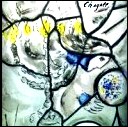
11.12.20 (Cheshvan 25, 5781) "Love not the world, neither the things that are in the world. If any man love the world, the love of the Father is not in him" (1 John 2:15). The way of faith always represents collision with the world (κόσμος) and its philosophy of the "good life." Happy are those who "hunger and thirst" for righteousness, who refrain from this world and make themselves its exiles because of their inner heartache for true life. For them no amount of the world's pleasures can obscure the difference between what is and what ought to be... This world is at best a corridor to the world to come, a "valley of decision" about what we ultimately choose to believe and to love... The heart of faith looks forward to "the city that has foundations, whose designer and builder is God" (Heb. 11:10).
צָמְאָה נַפְשִׁי לֵאלהִים לְאֵל חָי
מָתַי אָבוֹא וְאֵרָאֶה פְּנֵי אֱלהִים
tza·me·ah · naf·shee · le·lo·heem · le·el · chai
mah·tai · a·voh · ve·ei·ra·eh · pe·nei · e·lo·heem?

"My soul thirsts for God, for the living God.
When shall I come and appear before God?"
(Psalm 42:2)

Hebrew Lesson:
Psalm 42:2a Hebrew Reading (click):
There is a great danger to become so assimilated into this world that either the soul gets lost in worldly politics and its phony dialectic between "good" and "evil," or that the soul grows numb and cold -- without any concern or protest against the schemes of the wicked and troubles of this age... Conscience is seared; natural affections have been abandoned; and the "life" of the soul becomes a mere cipher, a phantom, a ghost... This is the scheme of the worldly dialectic that traps the human soul into living and dying for the sake of sheer vanity. May God help us not to so waste our days... The core prayer of the godly soul is always, "Help me, O LORD my God! Save me according to your faithful love" (Psalm 109:26). Empty our hearts from vanity, O LORD, and afflict us with hunger and thirst for You, for you alone are what we really need....
עָזְרֵנִי יְהוָה אֱלהָי
הוֹשִׁיעֵנִי כְחַסְדֶּךָ
ohz·rei'·nee · Adonai · E·lo·hai
ho·shee·ei'·nee · khe·chas·de'·kha

"Help me, O LORD my God!
Save me according to your faithful love!"
(Psalm 109:26)

Hebrew Lesson:
Psalm 109:26 Hebrew Reading (click):
Perseverance of Faith...

11.11.20 (Cheshvan 24, 5781) Faith perseveres in the way of life... "You who have clung to the LORD your God are all alive today" (Deut. 4:4). The Hebrew word devakut (דְּבָקוּת) means "cleaving" and refers to communion with God. This word comes from davak (דָּבַק), meaning to "cling" or "stick" (the Modern Hebrew word for "glue" is devek (דֶבֶק) which also comes from the same root, as does the Yiddish word "davka"). Devakut, then, implies being intimately connected with God in an earnest and passionate relationship.... The sages comment that we can cleave to God only one day at a time, since our future is conditioned upon this present day and its challenges. As Yeshua said: "Take therefore no thought for tomorrow: for tomorrow shall take thought for the things of itself. Sufficient for the day its own trouble" (Matt. 6:34). One day at a time. The LORD gives us daily bread (לֶחֶם חֻקֵּנוּ) so that we may persevere for this day; he feeds us with hunger to teach us to rely on alone him for true life (Deut. 8:3). "For he is our God, and we are the people of his pasture and the sheep of his hand today -- if you hear his voice" (Psalm 95:7). Today, if you hear his voice, do not harden your heart (Heb. 3:15). "Take care, brothers, lest there be in any of you an evil, unbelieving heart, leading you to fall away from the living God, but encourage one another every day, as long as it is called "today," so that none of you may be hardened by the deceitfulness of sin" (Heb. 3:12-13).
דבקה נפשׁי אחריך
בי תמכה ימינך
da'·ve·kah · naf·shee · a·cha·re'·kha
bee · tam·khah · ye·mee·ne'·kha

"My soul clings to you;
Your right hand upholds me." (Psalm 63:8)

Hebrew Lesson: Davakut
Psalm 63:8 Hebrew Reading (click):
Covenant and Promise...
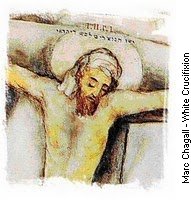
11.11.20 (Cheshvan 24, 5781) In Genesis chapter 17, God confirmed his covenant with Abraham by giving him the rite of circumcision, that is, brit milah (בְּרִית מִילָּה), a term that literally means "covenant (i.e., brit: בְּרִית) of the word" (i.e., milah: מִלָה). It is important to note that the rite of circumcision never was intended to effect the promise of God but only to attest to it. Circumcision served as sign or token of faith in the word of the LORD, that is, in God's loving promise. We see the connection by noting that the word "covenant" (i.e., brit: בְּרִית) appears exactly 13 times during this dramatic episode (i.e., Gen. 17:1-22), which is the same numeric value as the Hebrew word for love (i.e., ahavah: אַהֲבָה). Further note that the last occurrence of the word "covenant" in this section concerns God's exclusive choice of Isaac, Abraham's only true heir, the promised child who was chosen to be the "sacrificed seed" (see Gen. 17:21). Indeed the very first time the word "love" appears in the Scriptures occurs when God asks Abraham to take his son, his "beloved" son, and to offer him as a whole burnt offering (Gen. 22:2), a clear picture of the sacrificial message of Yeshua the Messiah:
"Please take your son... קַח־נָא אֶת־בִּנְךָ
your only son... אֶת־יְחִידְךָ
the one whom you love... אֲשֶׁר־אָהַבְתָּ
even Isaac... אֶת־יִצְחָק
and go to the land of Moriah and offer him as a burnt offering."
Hebrew Lesson:
Genesis 22:2a Hebrew Reading (click):
Note: For more on this subject, see "The Gospel According to Moses," "The Seed of Abraham," "The Sacrificed Seed," and related links on the Akedah.
The Sacrifices of God...
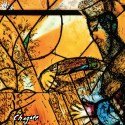
11.10.20 (Cheshvan 23, 5781) It is written in our Scriptures: "The sacrifices of God are a broken spirit (i.e., ruach nishbarah: רוח נשברה); a broken and contrite heart, O God, you will not despise" (Psalm 51:17). We are "in" but not "of" the world, so that means that we share in the common hardships and sorrows of this world. However, the difference is this: We do not suffer alone, for God's love surrounds us with comfort. For those who know Yeshua, suffering does not demand an intellectual answer to "why" we suffer as much as it evokes the heart's cry for God's presence... In the midst of our troubles the Spirit groans within us: "My soul clings to you and your right hand upholds me" (Psalm 63:8). We come to God in our brokenness, holding fast to his promise of comfort, and God upholds us with his hand. "This is my comfort in my affliction, that your word gives me life" (Psalm 119:50).
Hebrew Lesson:
Psalm 51:17 Hebrew Reading (click):
God is not indifferent to our plight, chaverim, and indeed, that is the basic message of the cross... Indeed how can we believe in God's love apart from the cross? How can we know the truth of his heart? God knows those who are broken and contrite (Isa. 57:15). The LORD is full of comfort; he loves the afflicted, he has grace for the humble, he forgives the fallen, and he revives the heart. Compassion is his nature - as the cross of Yeshua reveals - and therefore we can come to him in our need, in our affliction, as those who are "poor in spirit" (Matt. 5:3). God loves us even when we feel forsaken, all alone in our private struggles. The Spirit impels us to cry out for deliverance and experience consolation in our distress. This is a common experience in God's people: in our sorrows we seek him, and then we rediscover his mercies and great compassion. Great is his faithfulness (Lam. 3:23).
Hebrew Lesson:
Psalm 119:50 Hebrew Reading (click):
Remains of the Day...

11.09.20 (Cheshvan 22, 5781) Our life in this world will end far sooner than we expect, and then what will become of us? I am not here thinking of the end of "the" world, but rather the end of your world - when you will die and face the light of eternity. Today, this moment, you are on the way, going someplace; your "latter days" are already come... If you are not prepared today, how will you be better prepared tomorrow? Today is the day of salvation, the hour that matters most (Psalm 95:7; Heb. 3:13). Learn to die to the world now, to let go of what presently holds you captive, so that you are free to meet that which forever shall come. Don't put off genuine teshuvah: turn while there is still time (Eph. 5:15-16). And may God give us mercy to say from the heart: "For me to live is Messiah, and to die is gain" (Phil. 1:21).
As philosopher Blaise Pascal (1623-1662) once wisely observed: "Let each of us examine his thoughts; he will find them wholly concerned with the past or the future. We almost never think of the present, and if we do think of it, it is only to see what light is throws on our plans for the future. The present is never our end. The past and the present are our means, the future alone our end. Thus we never actually live, but hope to live, and since we are always planning how to be happy, it is inevitable that we should never be so" (Pensees). Amen, may God help us "remember the future" and live in the light of his great promises! Shalom chaverim.
למנות ימינו כן הודע
ונבא לבב חכמה
leem·noht · ya·mei'·noo · ken · ho·da'
ve·nah·vee · le·vav · chokh·mah
"Teach us to number our days aright
and we shall attain a hearts of wisdom."
(Psalm 90:12)
Hebrew Study Card

Hebrew Lesson:
Psalm 90:12 Hebrew Reading (click):
Endurance and Healing...
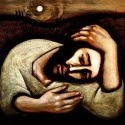
11.09.20 (Cheshvan 22, 5781) You may sometimes struggle with your faith -- not by questioning whether Yeshua is the Savior who died for your eternal healing, but in an hour of testing, when you feel exhausted by pain, when you pray for relief, seeking God in your cries and tears, but the pain continues, and then you are left rationalizing why you were denied your supplication, why your suffering has been prescribed -- for surely, you believe, God can heal you by simply saying the word - and then you wonder to what extent you need to be broken in order to be fully remade... As C.S. Lewis once said, "We are not necessarily doubting that God will do the best for us; we are wondering how painful the best will turn out to be" (Letters of C.S. Lewis, 1964). There is a trust issue in suffering, and an intimacy that comes through its fires. As Kierkegaard reminds us, "It is one thing to conquer in the hardship, to overcome the hardship as one overcomes an enemy, while continuing in the idea that the hardship is one's enemy; but it is more than conquering to believe that the hardship is one's friend, that it is not the opposition but the road, is not what obstructs but what develops, is not what disheartens but ennobles" (Four Upbuilding Discourses, 1844).
The difficulty of intense personal suffering is deeply existential: how do you keep hope in the midst of this tension? "Lord I believe; help my unbelief" (Mark 9:24). How do you affirm that your heavenly Father will heal you but at the present hour you must continue to endure suffering? Do you then devise a "soul-building theodicy" to explain your struggle – providing a narrative to answer the "why" of your suffering -- or do you attempt to sanctify suffering as a means of healing others by the grace of the Messiah (Col. 1:24)? When Yeshua victoriously proclaimed, "It is finished" just before he died on the cross, he foreknew that his followers would experience a "purging process," a "refining fire," and time on the "potter's wheel" to perfect their sanctification. At the cross of Yeshua death itself was overcome – and all that it implies – and yet it is nevertheless true that we will suffer and die ourselves and that death persists an enemy (see 1 Cor. 15:26). While we celebrate the reality of the final redemption, the "instrumentality of our sanctification" needs to be willingly accepted and endured. I say "endured" here because I don't think we will ever have a complete answer to the question of "why" we undergo the various tests we face in this life. Our disposition in the midst of this ambiguity, in the midst of seemingly unanswered prayers, is where our faith is disclosed: will we despair of all temporal hope or not? Will we console ourselves with the vision of a future without tears and loss - a heaven prepared for us -- or will we resist the present darkness and seek to find deliverance in this hour? Do we trust God with our pain and submit to his will, or will we "curse God and die" inside – losing hope and despairing of all remedy?
As King David once wrote, "At an acceptable time, O God, in the abundance of your steadfast love answer me in your saving faithfulness. Deliver me from sinking in the mire; let me be delivered from my enemies and from the deep waters. Let not the flood sweep over me, or the deep swallow me up, or the pit close its mouth over me. Answer me, O LORD, for your steadfast love is good; according to your abundant mercy, turn to me" (Psalm 69:13-16).
עֲנֵנִי יְהוָה כִּי־טוֹב חַסְדֶּךָ
כְּרב רַחֲמֶיךָ פְּנֵה אֵלָי
a·nei'·nee · Adonai · kee - tohv · chas·de'·kha
ke·rohv · ra·cha·mey'·kha · pe·nei · e·lai

"Answer me, O LORD, for precious is your compassion;
in the abundance of your mercies turn to me."
(Psalm 69:16)

Hebrew Lesson:
Psalm 69:16 Hebrew Reading (click):
God sometimes allows difficulties in the lives of those whom He favors in order to ultimately reward them. Why were Sarah, Rebekah, and Rachel barren for so many years? So that God would hear their prayers and reward them for their steadfast faith. Why was Leah more fruitful than the other wives of Jacob? Because she was "hated" and subject to unending gossip that she tried to steal her sister's husband, yet she persevered in hope. In this connection, some of the Chassidic sages render Psalm 118:21 as, "I thank you that you have pained me (עֲנִיתָנִי) and have become my salvation." The pain that I regarded as punishment became the means by which I obtained the salvation of the LORD. Similarly, "It was good that I was afflicted (עֻנֵּיתִי), that I might learn your decrees" (Psalm 119:71).
Hebrew Lesson:
Psalm 119:71 Hebrew Reading (click):
"But You, O GOD my Lord, do Thou for me for your own Name's sake; because your steadfast love is good, deliver me" (Psalm 109:21). "Do thou for me" is the confession that God alone has the power to help. Asking God to bring glory to His own Name -- to honor and magnify His Name -- is the theme of all true intercession.
Suffering has a way of focusing the heart and mind, reminding us that "today is the tomorrow of yesterday." Life is short, and our need is great to turn to the LORD and take hold His promises. We take comfort that God is for us the God of salvation: "Blessed be the Lord, who daily bears us up; God is for us our salvation. Selah. Our God is a God of salvation (יְשׁוּעָה), and to GOD, the Lord, belong deliverances from death" (Psalm 68:19-20).
Biblical Hebrew Wordplay...
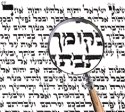
11.09.20 (Cheshvan 22, 5781) The Hebrew Scriptures are filled with various kinds of wordplay. In addition to some humorous play on words (i.e., puns), you will discover alliteration, acrostics, parables, similes, metaphors, hyperbole, gematria, and other literary devices used in the Hebrew text. Some scholars even suggest that the first two words of the Torah (i.e., בְּרֵאשִׁית בָּרָא / bereshit bara) were intentionally spelled using the same initial three letters (בּ.ר.א) for the sake of "alliteration" (i.e., repetition of sound). At any rate, examples of wordplay often appear on the surface-level of the texts. For example, "Adam" (אָדָם) is a play on the word adamah (אֲדָמָה, "ground"); Chavah (חַוָּה, "Eve") is a play on the word chai (חַי, "life"); Kayin (קַיִן, "Cain") is a play on the verb kanah (קָנָה, "to get"), and so on (see Gen. 2:7, 3:20, 4:1). Even the name "Jesus" (i.e., Yeshua: יֵשׁוּעַ) plays on the Hebrew word for deliverance or salvation (i.e., yeshuah: יְשׁוּעָה). Of course, many other examples could be cited.
Of particular relevance to this week's Torah portion is the name Yitzchak (יִצְחָק, "Isaac"), which plays on the verb tzachak (צָחַק, "to laugh"). Some have said that tzachak is "onomatopoeic," that is, it imitates the sound of laughter itself. Appropriately enough, the root appears a number of times in the story of Isaac, though often with different connotations. The simple stem (kal) of tzachak conveys the idea of laughter, whether in joy or incredulity, though the stronger stem (piel) suggests more intense expressions, for example rejoicing, playing, and making love -- or (negatively) mocking, scorning, and deriding. In other words, the motive for laughter (like most other linguistic things) is only contextually understood. After all, there's a big difference between laughing at someone and laughing with them.
At any rate, God Himself named Isaac in response to Abram's laughter over the prospect of having a child in his old age. Here's some of the "back story." God originally called Abram to leave Ur of Mesopotamia for the land of Canaan (Gen. 12:1). When he arrived there, God appeared to him (vayera) and promised that his descendants would inherit the land (Gen. 12:7). Abram was 75 years old at this time. Abram wandered through the land waiting for God's promise to be fulfilled. Some time later (but before the birth of Ishmael), God came to him in a vision and reaffirmed his promise that he would have a son "from his own loins" (Gen. 15:1-5). It was at this time that Abram "believed in the LORD, and He credited it to him as righteousness" (Gen. 15:6). The LORD then made the "covenant of the pieces" to seal the agreement to give the land of Canaan to Abram's descendants (Gen. 15:7-20). Ten more years passed, however, and Abram and Sarai were still childless. In a lapse of faith, Sarai urged Abram to cohabit with her Egyptian maidservant, Hagar, to produce the family heir. Ishmael was born when Abram was 86 years old (Gen. 16:16).
Yet another thirteen years passed before God appeared to Abram to renew his earlier promise that he would become a "father of a multitude" (Gen. 15; 17:7). Abram was now 99 years old. To symbolize Abram's changed status, God changed his name from Avram ("exalted father" [from אָב, "father," + רָם, "exalted"]) to Avraham ("father of a multitude" [from אָב, "father" + המוֹן, "crowd"]). (Note that some scholars regard Avraham's name to mean "father of mercy" (from אָב, "father" + רחם, "womb"). Likewise God changed Sarah's name from Sarai (שָׂרַי, "princess") to Sarah (שָׂרָה) -- the exchanged Hey (ה) for the Yod (י) was given to indicate that the Divine Presence was to replace of the "hand" of Sarah's design. (Indeed, the root of Sarah's name (i.e., שׂר, "prince") later reappears when her grandson Jacob was renamed "Israel." The wordplay occurs in the phrase "for you have striven (sarita) as a prince (sar) with God and with men and have prevailed" (Gen 32:28)). God reaffirmed his promise to make Abram into a great nation and then gave him the commandment of brit millah (בְּרִית מִילָה, ritual circumcision) as a token or "sign" of the agreement. (There is yet another play on words used here: Abraham's male descendants who would refuse to "cut off" their foreskins would be "cut off" from the terms of the covenant).
Getting back to the wordplay on Isaac's name, when the LORD repeated his promise that Abraham would sire a son in his old age, he "threw himself on his face and laughed (וַיִּצְחָק) as he said to himself, "Can a child be born to a man a hundred years old, or can Sarah bear a child at ninety?" (Gen. 17:17). When Abraham attempted to recommend Ishmael as his heir, God said "No, but Sarah your wife shall bear you a son, and you shall call his name Yitzchak (יִצְחָק, "he laughs").... (Gen. 17:19). After this vision of the LORD, Abraham promptly circumcised himself along with his son Ishmael (Gen. 17:23-26).
Rashi says it was the third day after Abraham's circumcision when he was visited by the Angel of the LORD (מַלְאַךְ יהוה) accompanied with the two other angels. When Sarah overheard the Angel of the LORD say, "I will certainly return to you next year, and your wife Sarah shall have a son" (Gen. 18:10), she laughed (וַתִּצְחַק) within herself (lit, "at her insides") and thought, "Now that I am withered, am I to have enjoyment, my husband being so old?" (Gen. 18:12). The LORD (יהוה) then asked, "Why did Sarah laugh (צָחֲקָה)? Sarah denied it (לא צָחַקְתִּי, "I didn't laugh"), but the Angel of the LORD said, "No, but you did laugh" (לא כִּי צָחָקְתְּ).
Jewish tradition maintains that Abraham laughed in joy at the prospect of becoming a father, whereas Sarah (initially) shook her head in disbelief. Sarah underwent teshuvah, however, even before her conception (see Heb. 11:11), and after the miraculous birth of her son exclaimed in heartfelt joy: "God has made laughter (צְחק) for me; everyone who hears will laugh for me (יִצְחַק־לִי)" (Gen. 21:6).
After Isaac was weaned, however, Abraham held a celebration, but Sarah saw Ishmael mocking (מְצַחֵק, i.e., the piel participle of צָחַק, "to laugh") her son and demanded that he be sent away. This grieved Abraham greatly, but God reassured him that Ishmael would become a great nation in his own right (Gen. 21:11-13). The promise of an heir belonged to Isaac alone - the miraculously given son that would bring laughter to the hearts of all those who believe.
A further example of wordplay on the name "Isaac" occurs when the Torah records how he fled to the Philistine city of Gerar to escape a famine in the land. Like his father Abraham, Isaac lied by telling people that his wife Rebekah was his "sister." The Torah records that his deception was detected when Abimelech saw him "playing" with Rebekah: יִצְחָק מְצַחֵק אֵת רִבְקָה אִשְׁתּוֹ / "Isaac was 'sporting' with his wife Rebekah" (Gen. 26:8). The verb translated "sporting" is the intensive (piel) form of tzachak (צָחַק, "to laugh"), and clearly suggests the idea of caressing and fondling -- i.e., making love.
Hebrew wordplay was also applied to Isaac's sons. When the twins were born, the first came out hairy and was named Esau (עֵשָׂו), perhaps from the word esev (עֵשֶׂב), "grass" or "weed" of the field), whereas the second came out with his hand on his brother's heel, and was named Ya'akov (יַעֲקב, "grappler," from the word עָקֵב, "heel"). Later, when Esau learned that Jacob had taken away his blessing, he exclaimed, "Is he not rightly named "heel holder" (i.e., יַעֲקב)? For he has taken me by the heel (יַּעְקְבֵנִי) these two times. He took away my birthright, and behold, now he has taken away my blessing" (Gen. 27:36).
The Life of Sarah... חיי שרה

11.08.20 (Cheshvan 21, 5781) Our Torah reading for last week (i.e., Vayera) told how God was faithful to Abraham and Sarah by miraculously giving them a son (Isaac) in their old age. Nonetheless, Abraham faced his greatest test of all by being asked to offer up his promised child as a sacrifice on Mount Moriah, the place of the future Temple. On account of his willingness to obey, God promised He would multiply Abraham's offspring as the stars of heaven and that in his seed (singular) all the nations of the earth would be blessed.
This week's Torah portion is called Chayei Sarah (חיי שרה), the "life of Sarah," though it begins (paradoxically) with the account of her death, and tells how the first great matriarch of the Jewish people was buried in the Cave of Machpelah in Hebron, a burial site which Abraham had purchased from Ephron the Hittite (Gen. 23:1-20). Since the account of Sarah's death is given just after the account of the near-sacrifice of Isaac (i.e., the Akedah), some of the sages link the events together, suggesting that the shock of the loss of her beloved son at the hand of her husband was just too much for her to bear...
Hebrew Lesson:
Genesis 23:1a Hebrew Reading (click):
After Sarah was buried in Hebron, Abraham sought a wife for his son by commissioning his faithful servant Eliezer (whom Abraham had once thought would be his heir), to go among his relatives living in Mesopotamia to seek a bride for Isaac. Eliezer (i.e., אֱלִיעֶזֶר, lit., "My God will help") then set out on the 550 mile journey to Haran (also called the City of Nahor and the place where Abraham's father died), taking ten camels laden with gifts in search of a suitable woman. In answer to his prayer, as soon as Eliezer reached the city of Nahor he encountered Abraham's grand niece Rebekah drawing water at a well, where she graciously provided water for him and for his ten camels, thereby confirming that she was God's choice for Isaac.
Knowing yourself in Him...

[ One of my sons (Josiah) was exposed to someone with Covid yesterday, and we appreciate your prayers for our family's protection. We trust God in all things, of course, though it is important to pray for one another too! Thank you. - John ]
11.06.20 (Cheshvan 19, 5781) It is vital to affirm your identity as a beloved child of God... You may not always feel the connection, but you must choose it regardless of your present emotional state, because your place in God's heart is a matter of truth, not sentimentality. Who you really are is grounded in the Reality and power of the LORD God of Israel.
After all, God loved you before you were born (Jer. 1:5; 31:3); he knit you together in your mother's womb (Psalm 139:13-16); he gives you life from above and adopts you as his own (John 1:12; Rom. 8:15); he knows the number of the hairs on your head and every thought and word of your heart (Matt. 10:30; 12:26; Psalm 139:4); he directs every step of your journey throughout this life (Psalm 37:23; 139:3; 23; Prov. 16:9); he foresaw you when he offered up his life in redemption for your healing (1 Cor. 15:3; 2 Cor. 5:21; Gal. 1:4; 1 Pet. 2:24; 2 Cor. 5:18); you are briah chadashah, a new creation (2 Cor. 5:17; Gal. 6:15); you are always welcome in his presence (Eph. 1:6; Heb. 4:16); he will never leave you nor forsake you (Heb. 13:5); he prepares a place for you in the world to come (Jer. 29:11; John 14:1-3); and one day he will wipe away every tear from your eyes (Rev. 7:17; 21:4).
When you are tempted to feel badly about yourself, then, take a moment to affirm who God says you are. Don't allow your past to hold you in exile; don't give place to shame; know yourself only in relation to God's love for your soul. Whenever you feel hurt, angry, fearful, or rejected, turn inwardly to God and center yourself in his presence; realize that such negative feelings do not define what is most real about you. Bacharta ba'chayim: "Choose life!" Turn now to God; reaffirm that you are his beloved child, and thank him for the blessing of your redeemed life. Amen. Shabbat Shalom, chaverim!
Hebrew Lesson:
Jeremiah 31:3b Hebrew Reading (click):
|




